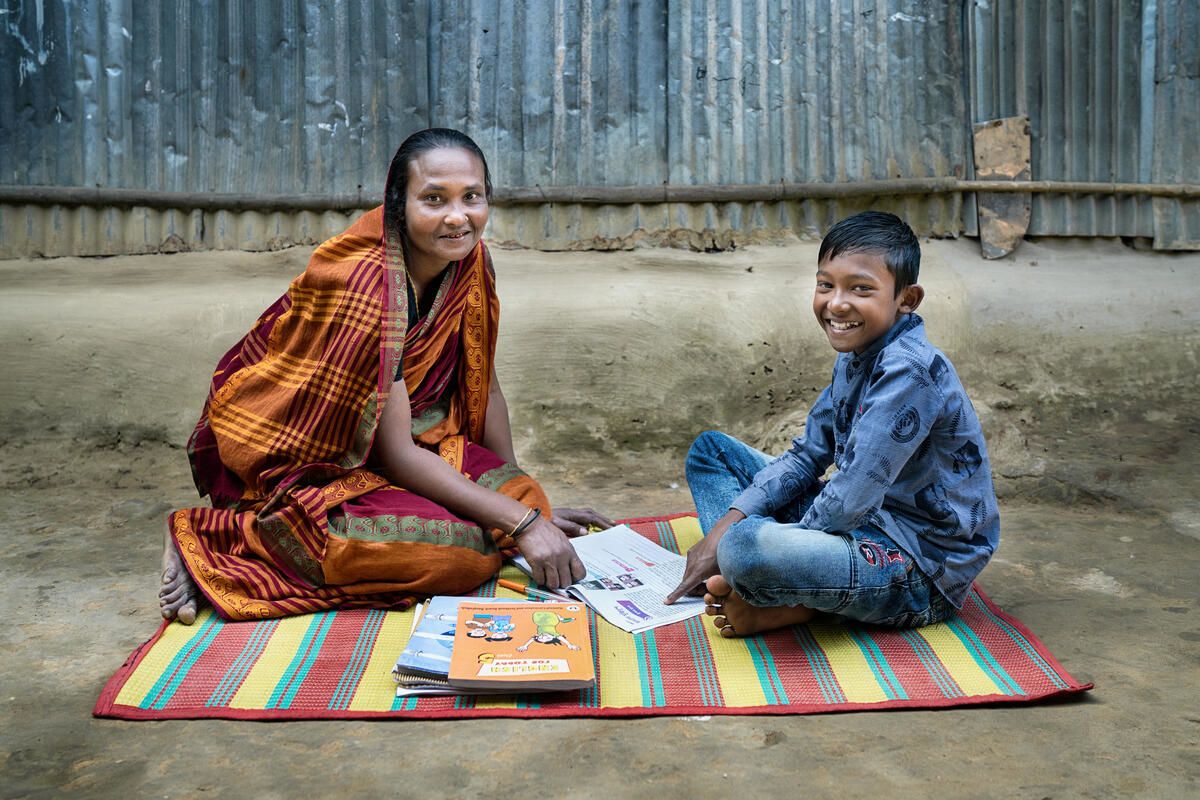The women and girls leading the way towards a sustainable future in Bangladesh
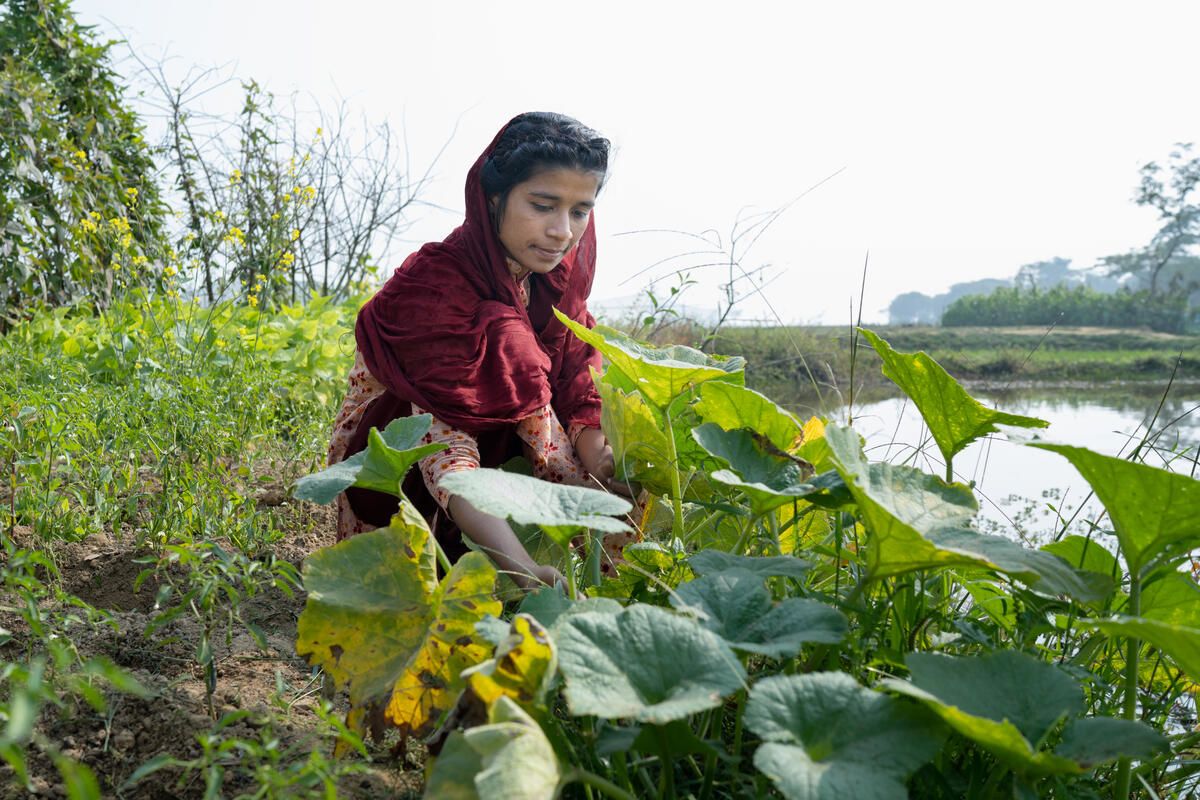
Seven years ago, Bangladesh was facing a malnutrition crisis. In the region of Sylhet in particular, the effects of chronic malnutrition were being exacerbated by climate change and early marriage.
To combat these issues, Save the Children worked with partners to launch a programme called Suchana, which means ‘new beginning’ in Bangla. Today, tens of thousands of families have been supported to make long-term sustainable changes in their communities and offer the children of Sylhet a brighter future. Below are some of their stories.
THE SITUATION IN 2016
Nearly half of all children in Sylhet suffer from stunting – the worst rate in the country. This means their bodies and brains lack the nutrition they need to develop, with physical consequences that can cause a lifetime of suffering and challenges.
Making life even harder for families in this part of Bangladesh is their increasing vulnerability to climate change. They live in the floodplains and marshlands near the border with India's Megalaya mountains, which have the highest average rainfall on Earth.
Early marriage is exacerbating the problem of malnutrition, because babies born to adolescent girls are at greater risk of stunting. That’s in addition to the huge damage child marriage does to the mental and physical wellbeing of teenage girls and their future life chances.
THE SOLUTION
Save the Children, together with our partners, established Suchana, a programme to ensure long-term sustainable change for communities – equipping them with the tools and knowledge to build their resilience and provide for their families.
We focused on ensuring the first 1,000 days of a child’s life were healthy, by helping families to grow food and be able to eat a more nutritious diet to protect their futures.
THE STORY TODAY
Suchana has helped make sure that children have a bright healthy future. 235,000 families who we supported with the tools to support their children's nutrition, now grow their own food and build a sustainable livelihood.
We're sharing the stories of five inspiring Suchana women and girls who have started a new beginning for their families.

RASHIDA
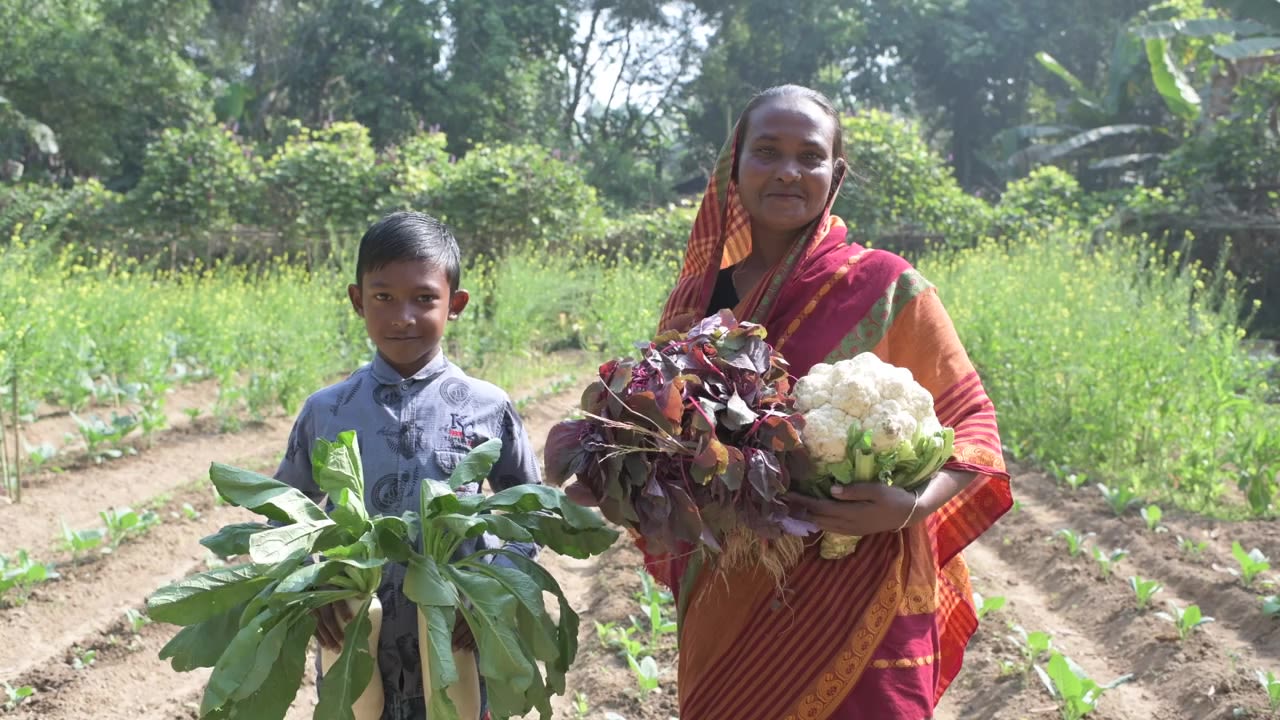
THE MODEL FARMER
"Gourd, ribbed gourd, sponge gourd, radish, cabbage, cauliflower, banana, string beans, red leafy greens and mustard leaves..."
These are just some of the dozens of vegetables that 10-year-old Rashel points out as he walks around his mother's vegetable garden.
I love the vegetable garden.
Rashel's mother - Rashida - has grown her garden from scratch over just a few years. It's now an abundant plot of vegetables.
Her farm is so successful that it's even been recognised by the Government of Bangladesh as a 'Model Farm' – where people from all over Rashida's community visit to learn about her techniques.
But life hasn't always been easy for Rashida and her family. Dependent on a single income from her husband's work as a day labourer, there were times when Rashida couldn't provide for her children.
"I couldn't give my child food to eat. If he wanted something, I couldn't fulfill his needs. He asked for good food because he saw others with food around him. But I couldn't feed him."
The devastating floods that often wash through the area only compounded the stress that Rashida and her family were under.
During the flood, no one could eat. Besides, no one could go to work. I couldn’t eat either.
So when Rashida received seeds, tools and training from the Suchana programme, she seized the opportunity to turn her family's situation around.
Now, the whole family helps on the farm. Rashida grows a range of vegetables which her husband then sells at the market. This provides them with a steady income as well as a diverse source of vegetables that they can eat at home.
"We eat them and sold them in the market. Demand for my vegetables increased. My family benefited a lot," she explains.
The programme introduced innovative solutions to ensure that crops could be more resilient to climate change. Rashida learned about the value of sack and tower gardens. This means she can grow plants in sacks and on vertical trellises to help keep the vegetables and their roots above flood water.
Even if there is a flood now, my vegetables are not spoiled. I can sell the vegetables even during the flood. I sell it at the right price. No one else does it like me.
Rashel loves helping his mother plant the seedlings and water the vegetables. And he loves eating the end product even more!
Rashida cooks healthy curries and other dishes, which provide Rashel with all of the nutrients he needs to grow.
When he's not helping on the farm, Rashel loves going to school and learning. He wants to be an engineer one day, so he can support his family.
I will study and get a good job. I will become a good man.
Now that Rashida can use her income to pay for Rashel's school fees and school materials, he's even closer to achieving his dream.
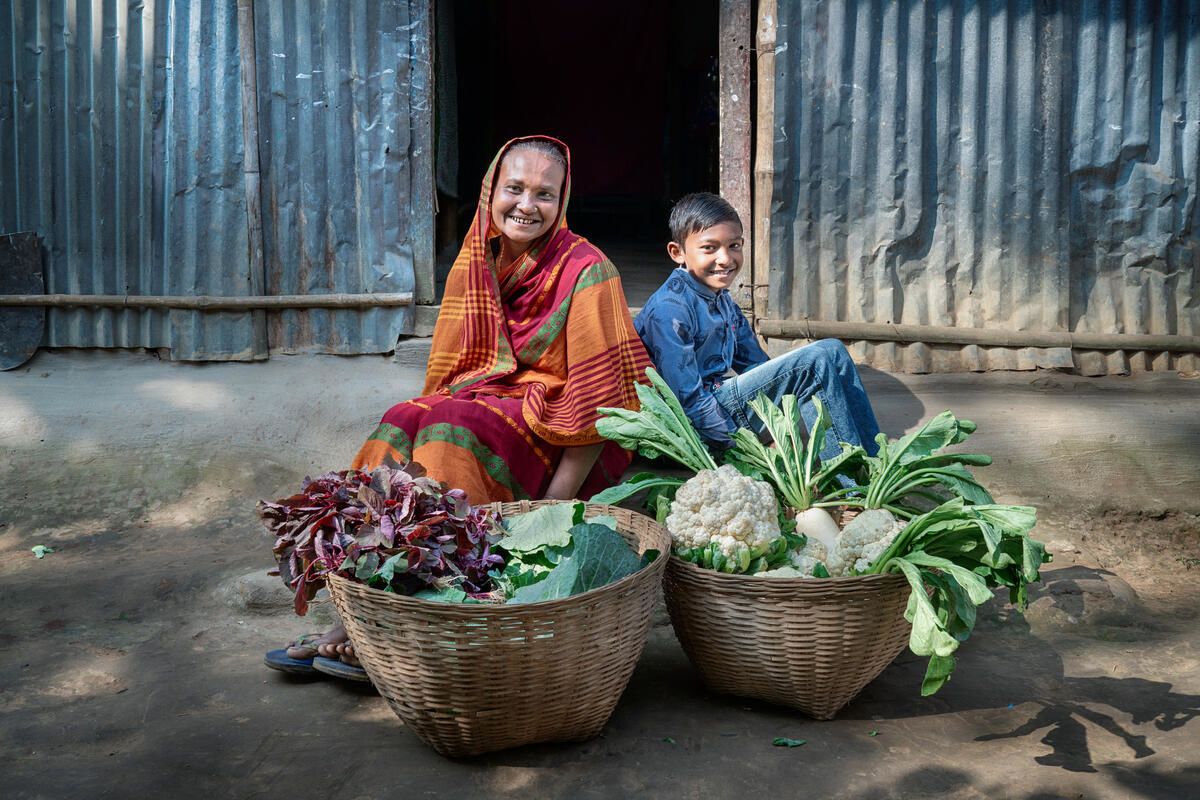
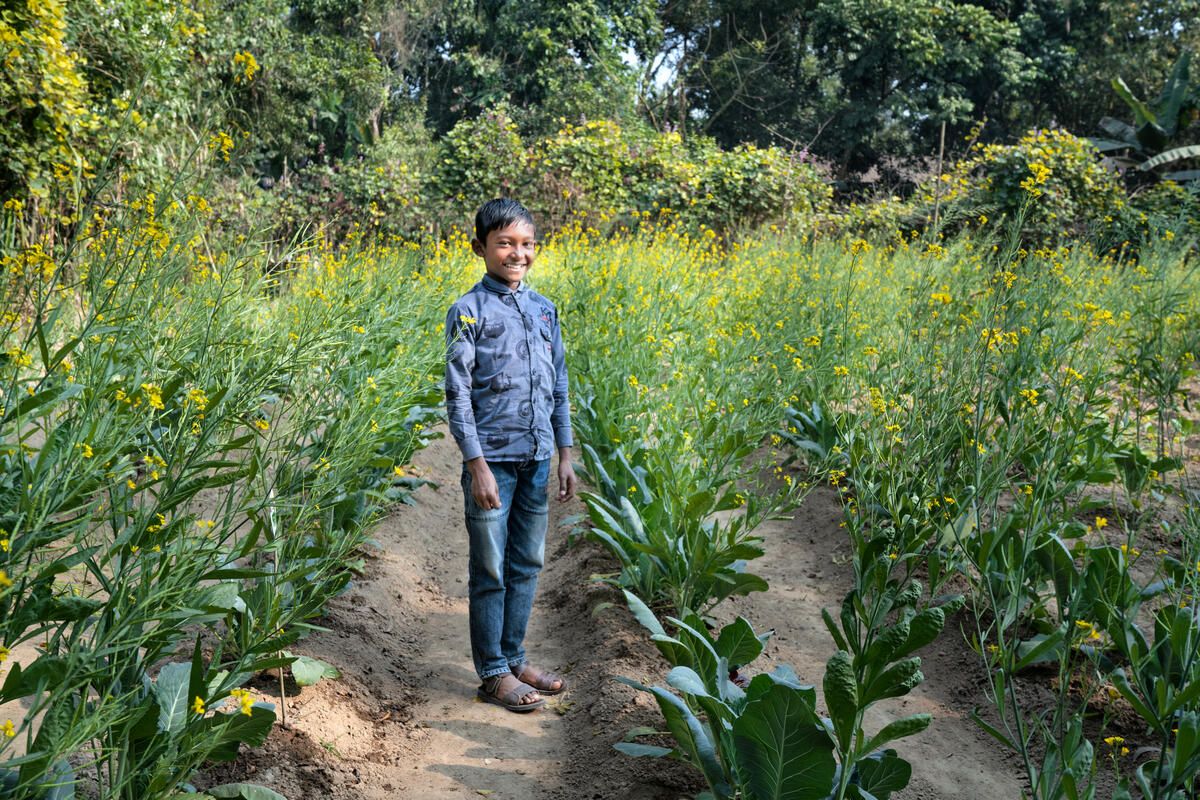
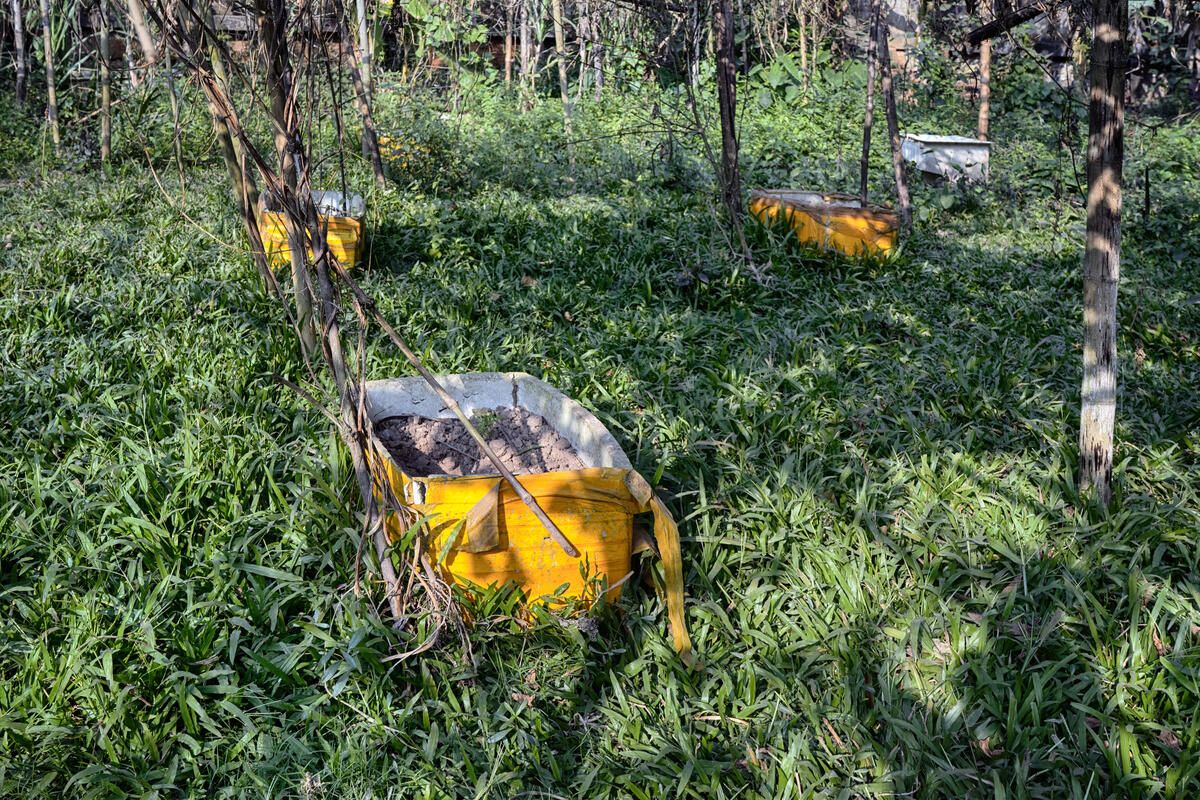
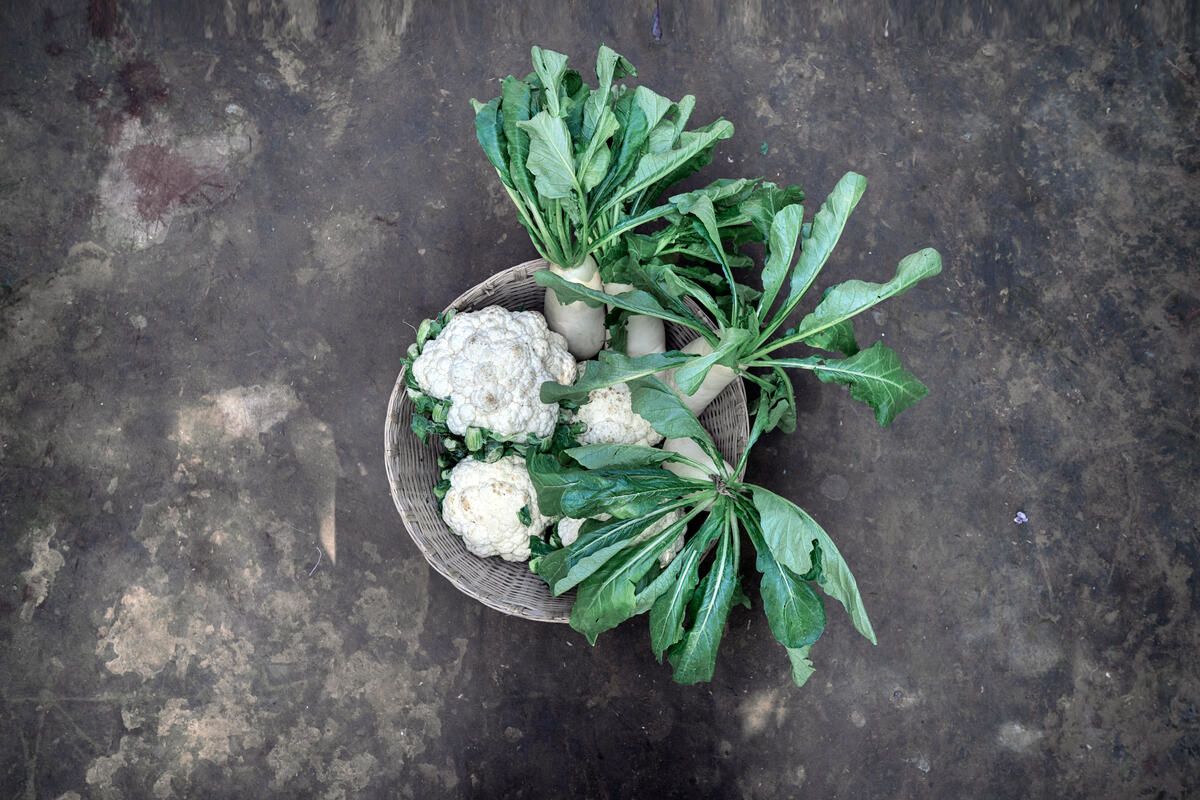
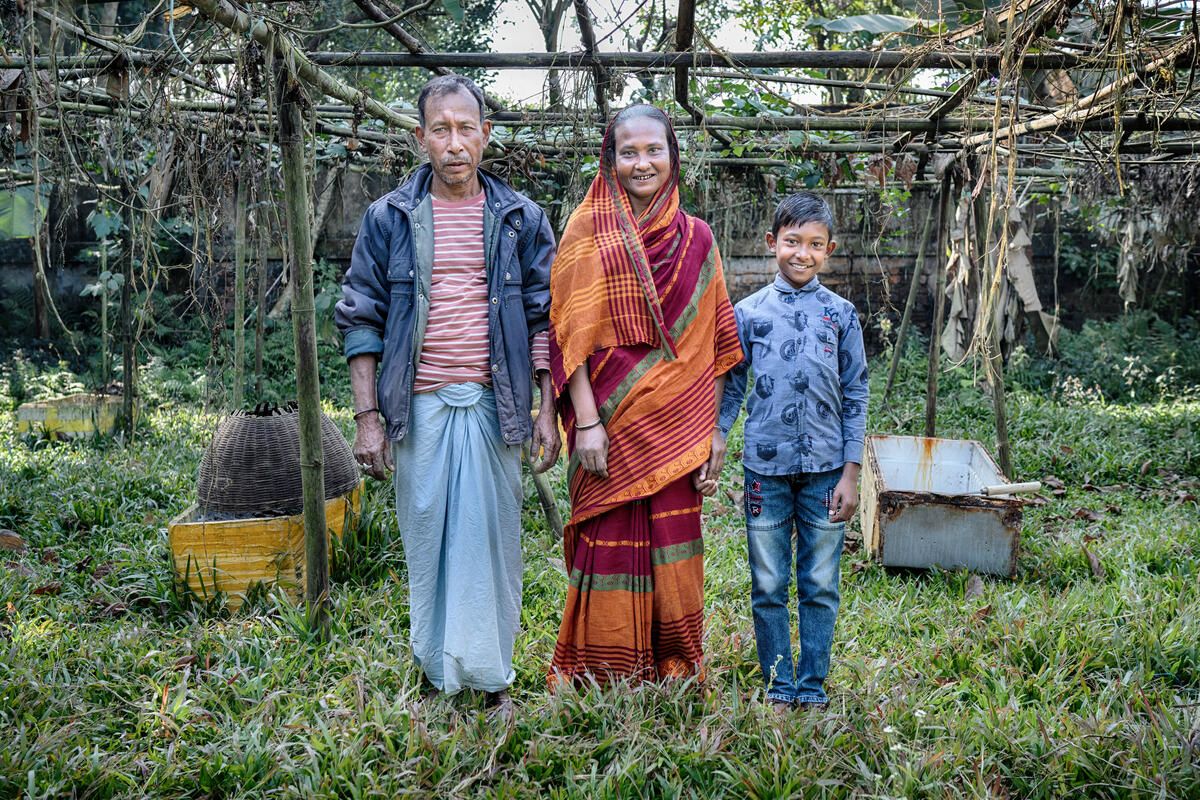
235,579
HOUSEHOLDS WERE SUPPORTED BY SUCHANA
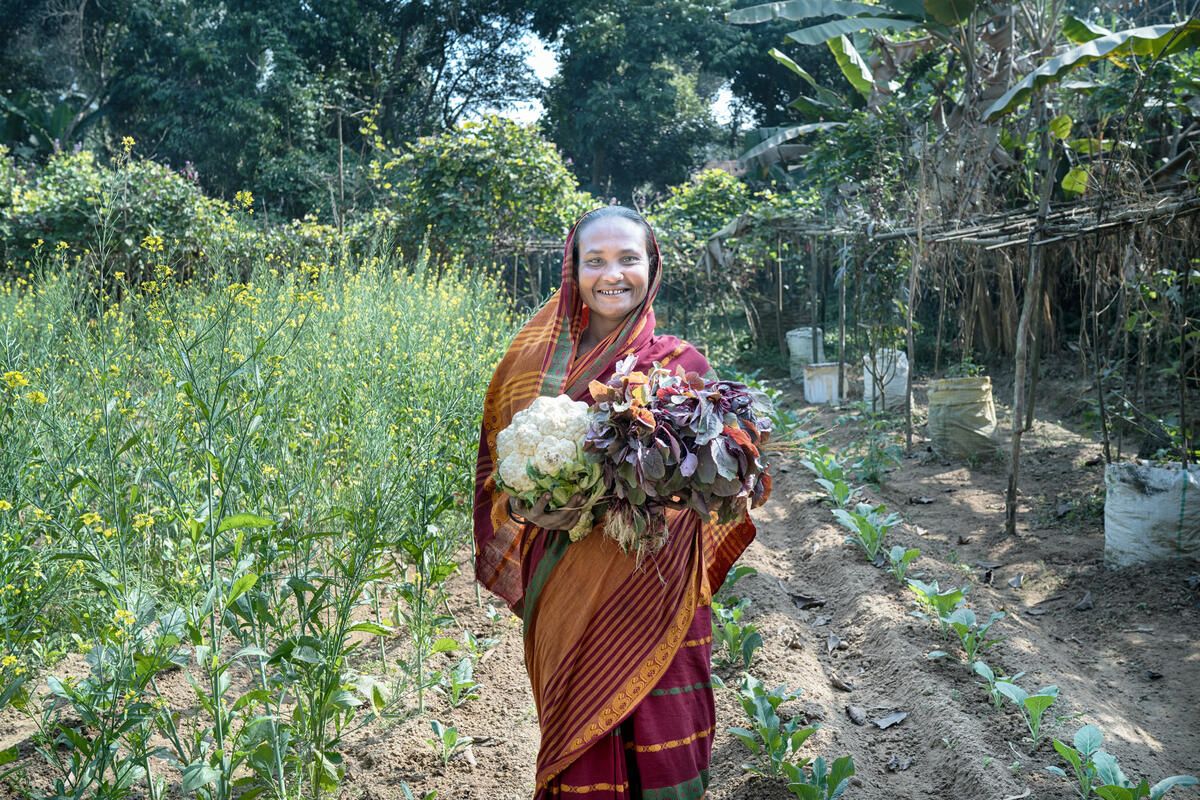
82%
OF HOUSEHOLDS THAT RECEIVED SUPPORT WITH THEIR FARMS ARE STILL FARMING TODAY
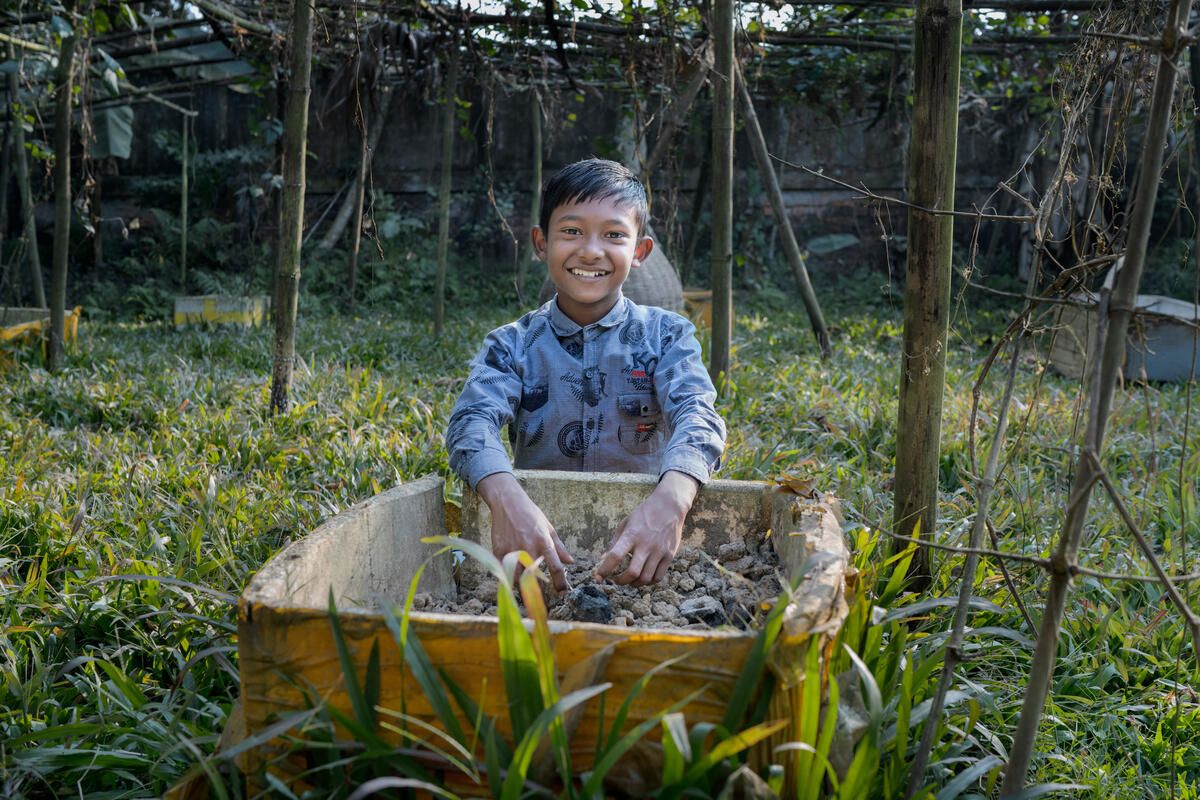
2/3
HOUSEHOLDS NOW USE AT LEAST ONE CLIMATE-SMART HORTICULTURAL TECHNIQUES IN THEIR VEGETABLE FARMS AND GARDENS
MUNNI
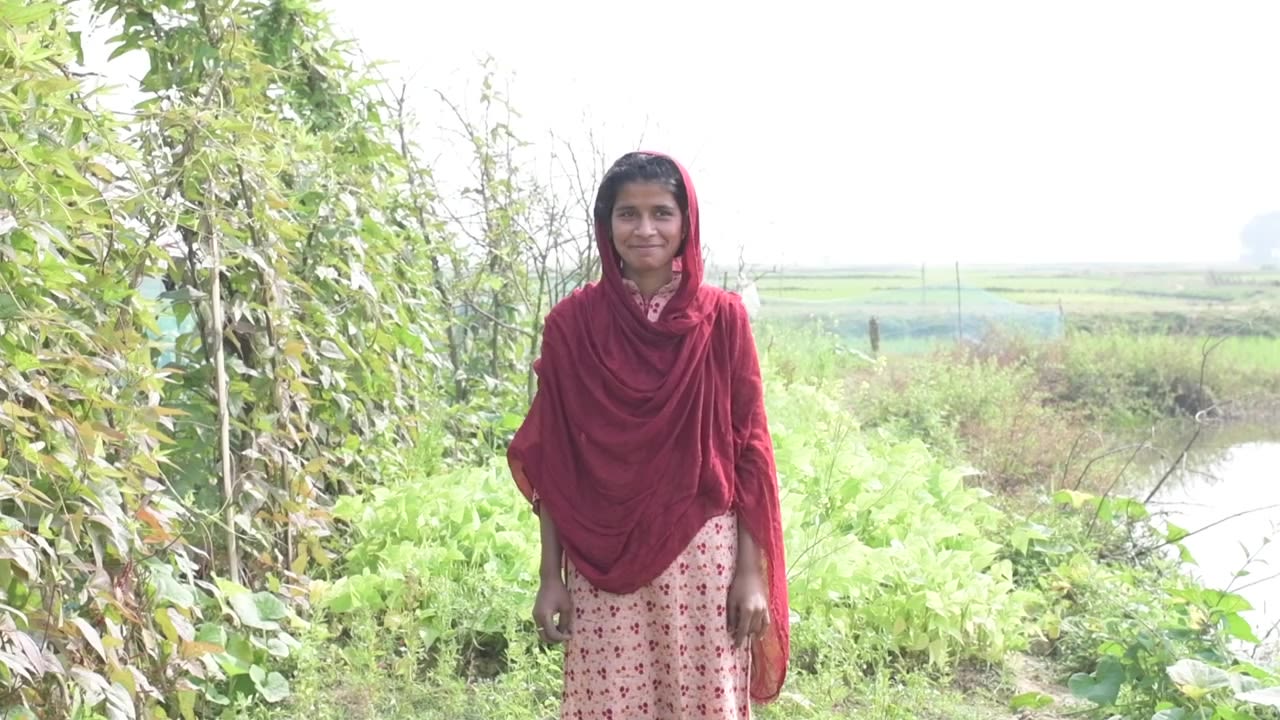
THE TRAILBLAZER
Munni is defying stereotypes by becoming the first girl to try fish farming in her community. Keep scrolling to see how she's inspiring other community members, and leading other girls to defend their rights.
Girls don't [usually] do fish farming. Their brothers and fathers do the fish farming.
The 18-year-old lives with her mum, dad, brother, and younger sister Tanni, in the 'Haor' – a wetland marsh which floods during the rainy season. As the climate crisis worsens, the floods have been more extreme than usual.
"The flood this year was unlike many past floods," Munni says.
"There was a lot of damage. People had to vacate their homes. Half of our house was sunk in the mud. It was painful."
Munni’s family was given an emergency cash transfer from Suchana which they used to buy a boat to transport themselves and their cattle around safely.
Munni has also taken part in Suchana training to help communities increase sustainable food production in the long-term, and build climate resilient farming techniques to protect against flooding.
During the training Munni was shown how to farm fish in her small pond and provided with all the equipment.
"Everyone praises that I am doing fish farming, it's going great. I'll use the money from selling fish to progress," Munni proudly explains.
Teach a girl to fish, and not only are you feeding her for a lifetime, but that knowledge has a ripple effect for others in her community. Munni is teaching other people in the community how to fish farm and her neighbours come to learn from her.
Many people come to see the fish. It makes lots of people want to start fish farming. That feels nice.
A crucial part of protecting her livelihood is the simple innovation of a 'hapa cage', a fine net installed in the pond, so that the fish can't swim away during floods. Suchana taught Munni how to use a hapa cage in addition to providing all of the materials.
Munni is also leading the way in girls' rights, and is a peer leader at her local Suchana Girls' Group, where she has become an advocate for girls, speaking out against child marriage and advising others on health and nutrition.
These groups are a safe space for girls to spend time with each other, where they're away from the pressures of household chores and have the time to be children together.
We need to explain child marriages are not good. It's a crime. This is doing injustice to their daughter.
The group have worked hard to encourage girls to stand up for their rights and pursue their education. Something that Munni is passionate about herself. She's been able to use her income from fish farming to help her family, and buy notebooks and pens for her studies.
Munni is now determined to build on the success of her fish farm, study and do work that will help others. And she has the same hopes and dreams for the girls she's grown up around.
"For the future of the girls in my village, I hope for them to be educated and that they do good, always. That's what I want."
Munni shares her thoughts on child marriage
Munni shares her thoughts on child marriage
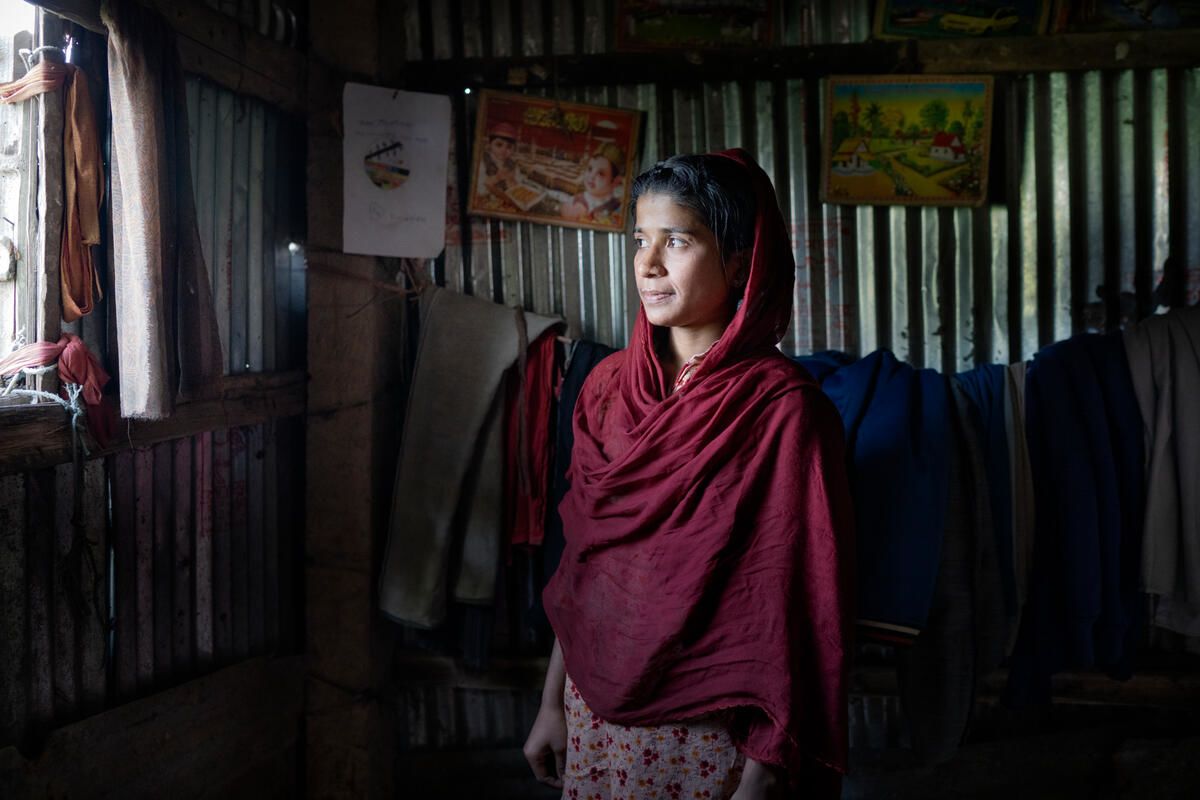
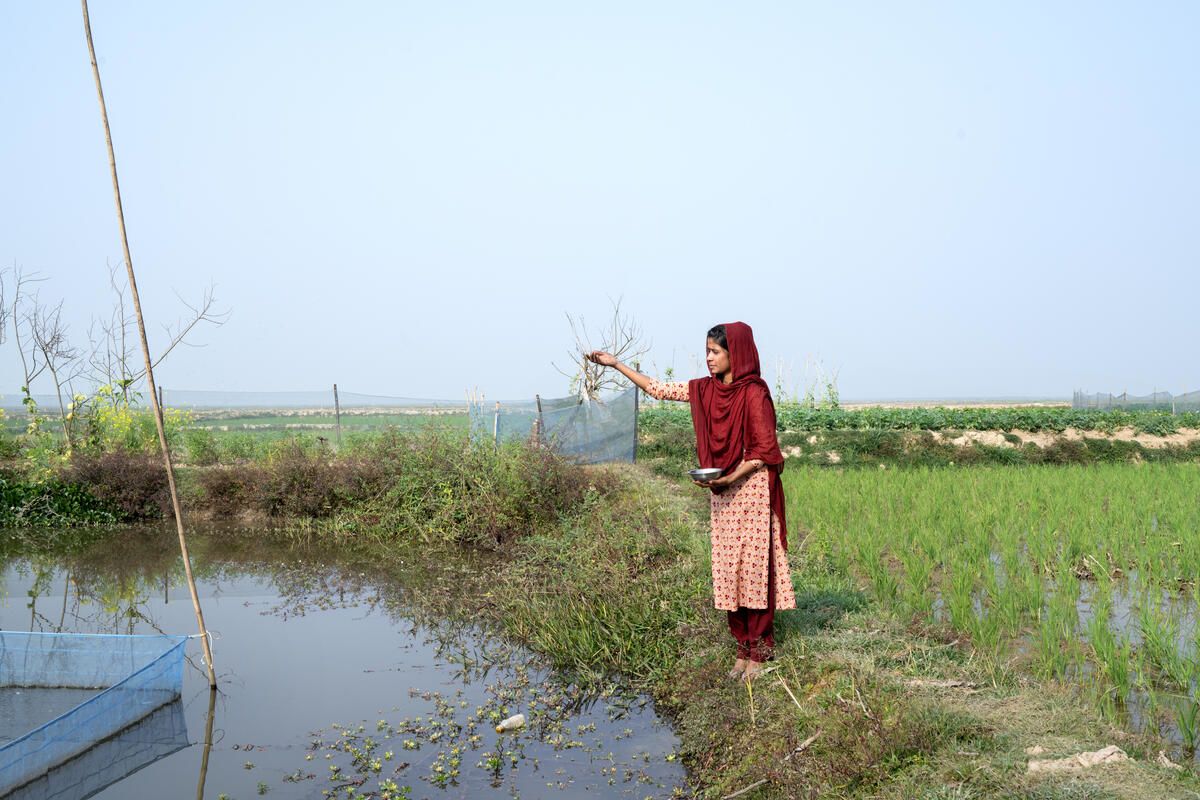
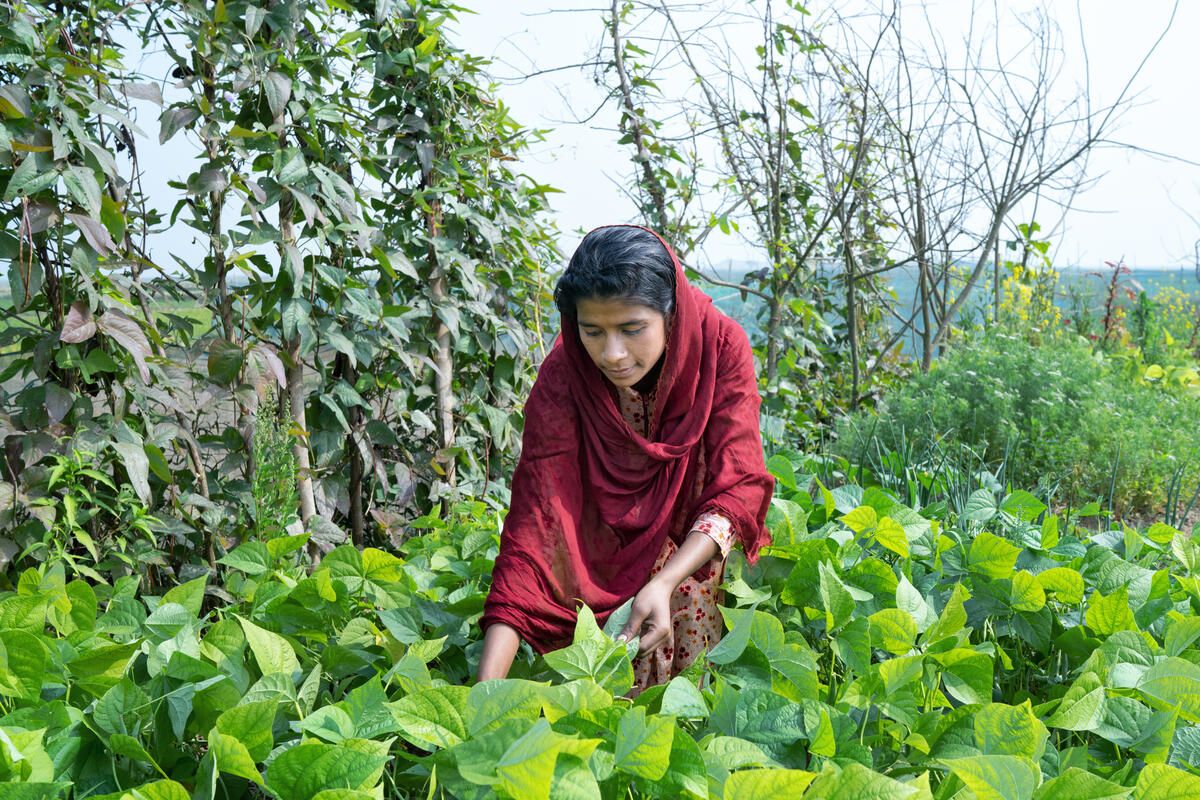
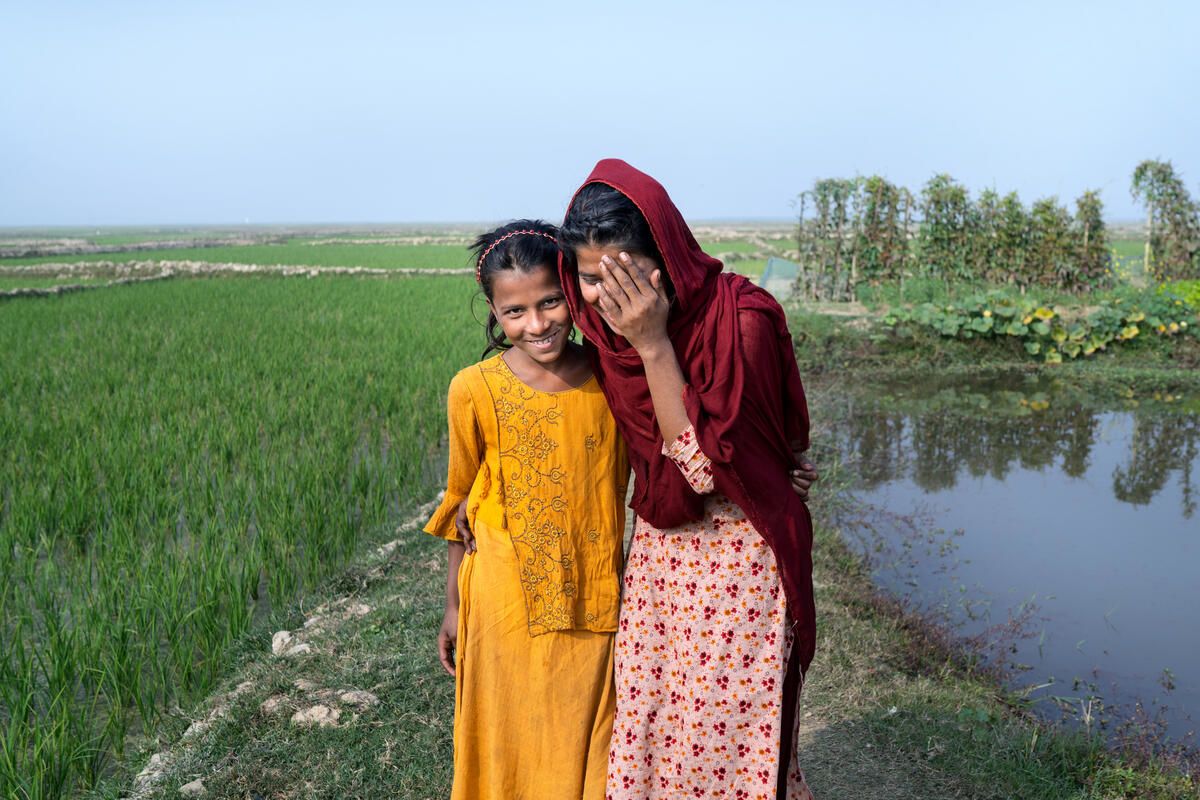
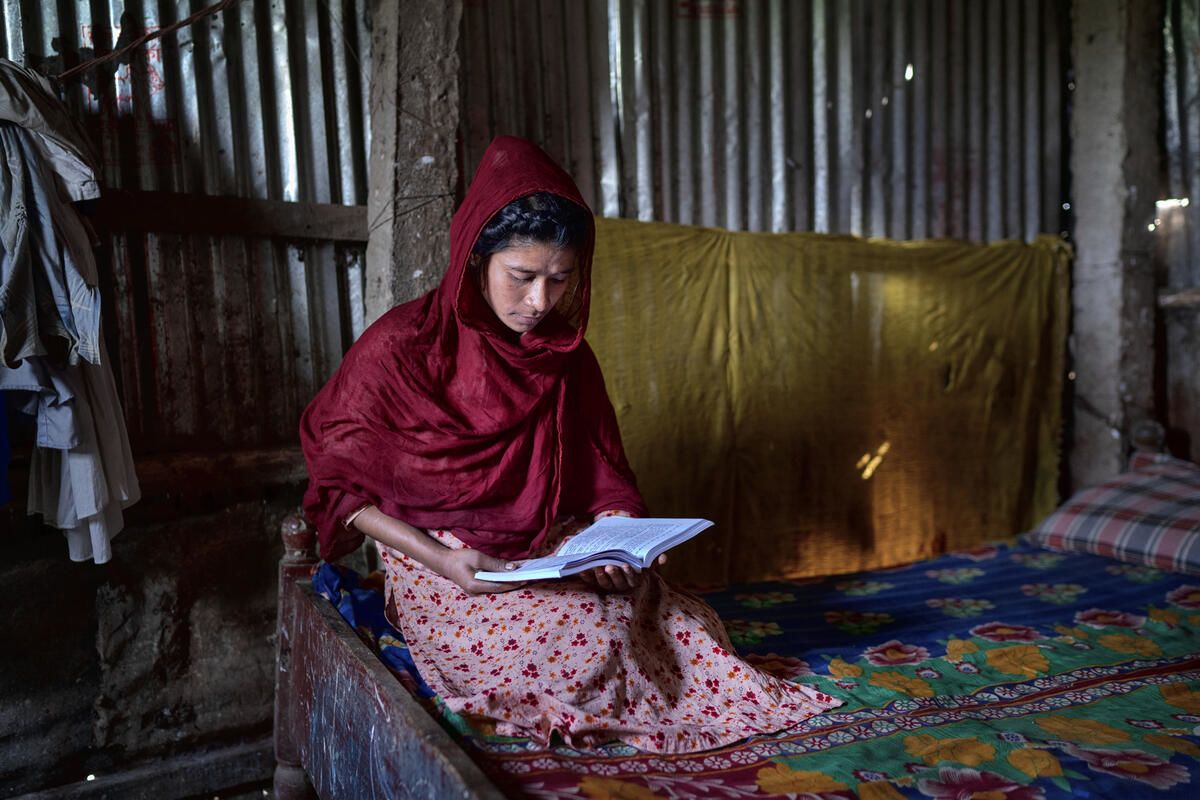
96%
OF GIRLS ARE NOW AWARE OF THE LEGAL AGE OF MARRIAGE IN BANGLADESH
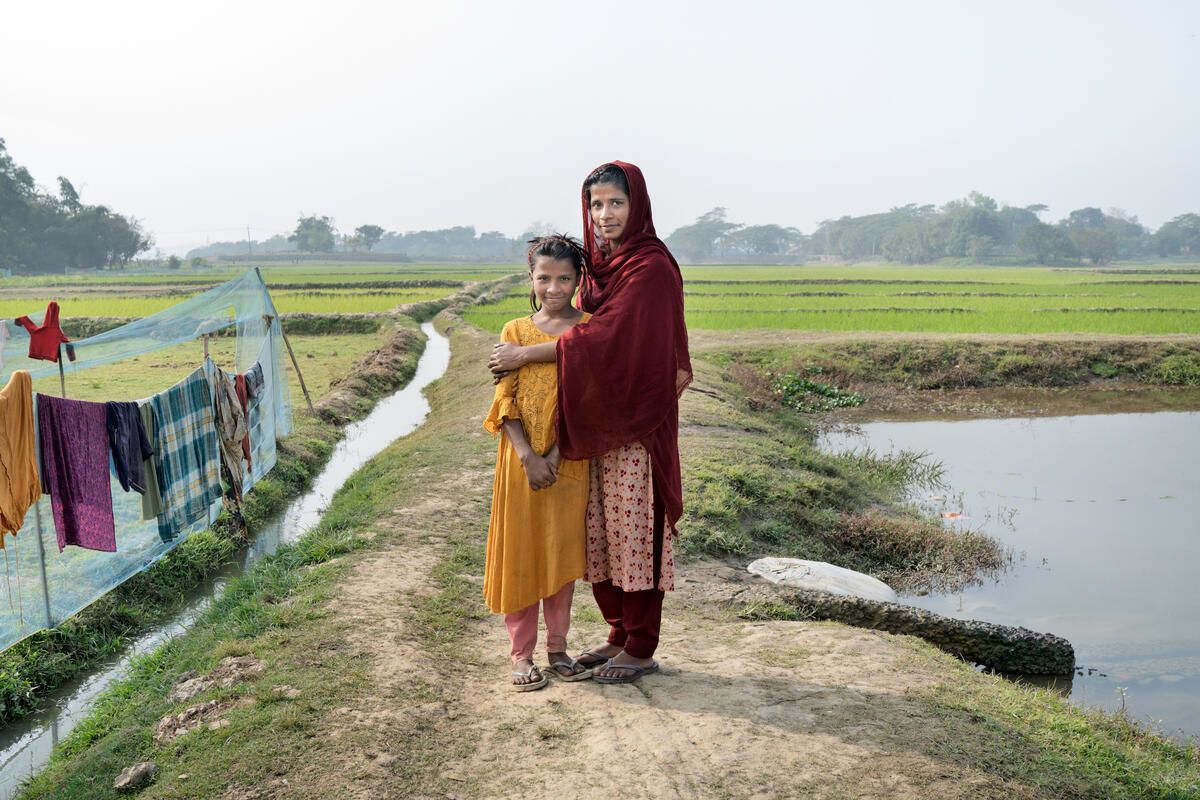
MORE GIRLS
FEEL EMPOWERED TO VOICE THEIR OPINION AND SPEAK UP FOR THEMSELVES WITHIN THEIR FAMILIES AND COMMUNITIES
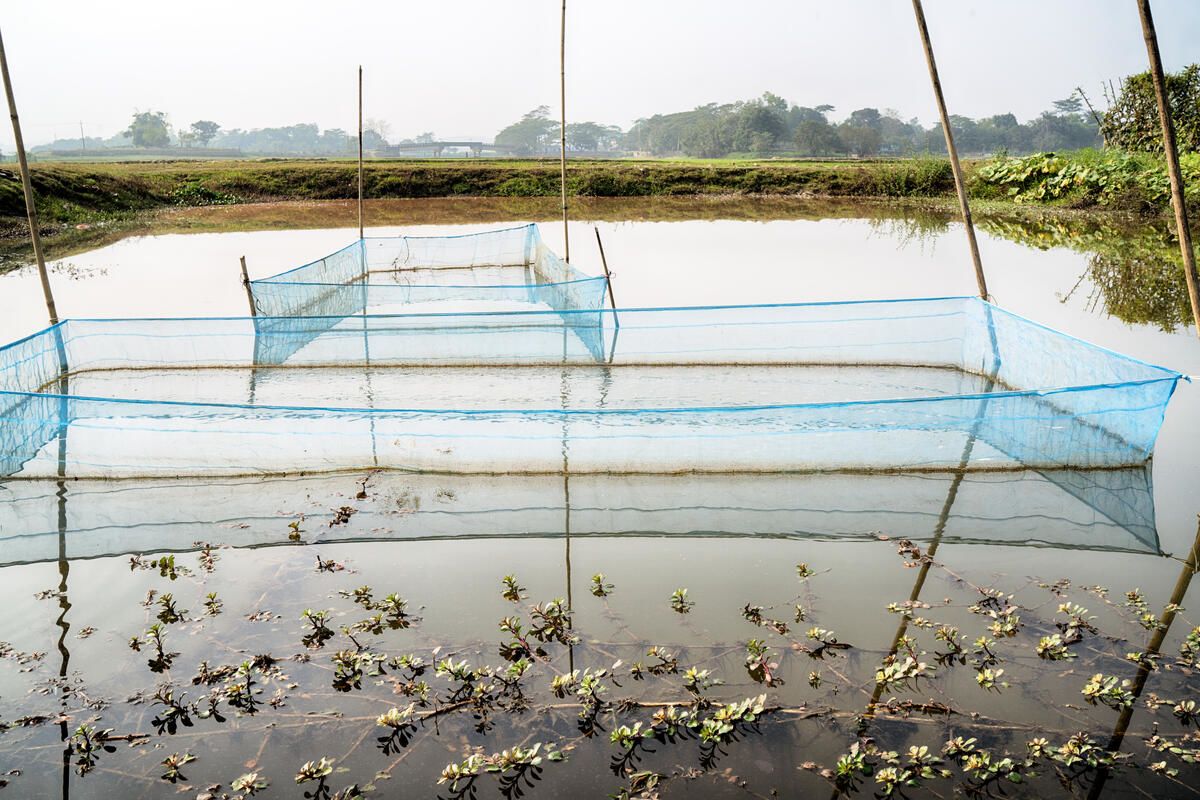
65,883
HOUSEHOLDS HAVE SET UP FISH FARMING PONDS
ROHIMA
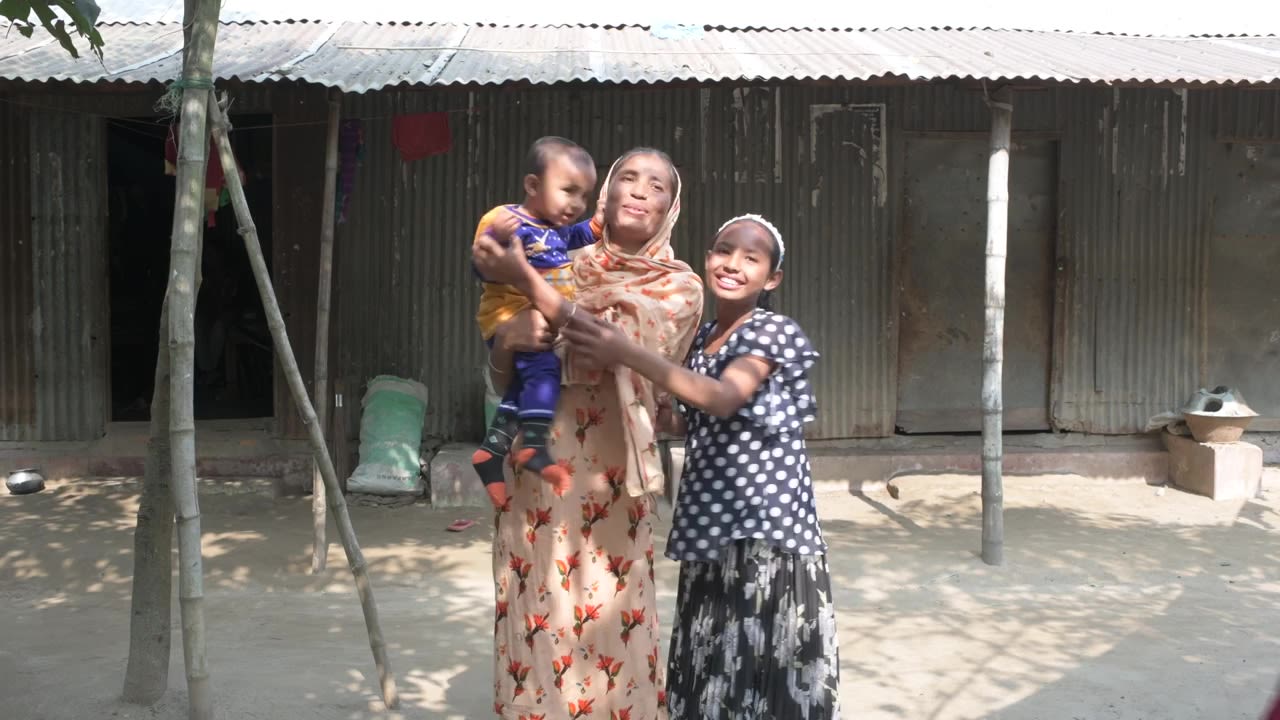
THE PROVIDER
Smiling baby Nafiz is a happy, healthy baby whose eyes are full of mischief. His mother Rohima proudly laughs at what she calls his 'naughty side'.
Rohima and Nafiz are the vivid and joyful proof of the importance of the first 1,000 days of a child's life, when the foundations for their long-term health are built. These first 1,000 days were a key part of Suchana's focus.
Rohima didn't have regular check-ups during her first two pregnancies, and admits she had no knowledge of nutritious food sources and their importance, until the Suchana programme started.
Suchana made me realise that it is important to eat nutritious food.
When Rohima was pregnant with Nafiz, now 14 months, she was encouraged by the Suchana team to go for regular ante-natal and post-natal check-ups, and given advice on how to eat all the right nutrients.
"It was a relief for me that both me and my baby are fine," Rohima tells us.
Rohima was also encouraged to breastfeed Nafiz for the first six months of his life.
"After Suchana, we only fed babies the mother's breast milk for the first six months, and the colostrum within half an hour of the delivery. The colostrum is like the first vaccine for the baby."
Rohima has learnt new tools and advice on how to give her children the healthiest start in life and improve their nutrition.
Now she uses what she learned from Suchana, to grow fruit and vegetables at home, rear ducks and make sure her children Noor, Taiyeba and Nafiz are eating balanced meals throughout the day.
But the programme didn’t just help Rohima to provide her children with nutrition. With the surplus money she makes from her food production, Rohima pays for her children’s school fees and buys them the books and materials they need to get a good education.
Rohima is most proud of the security and opportunities that she's able to provide for her growing family.
If I can educate my kids, and raise them properly in my small house, that's enough.
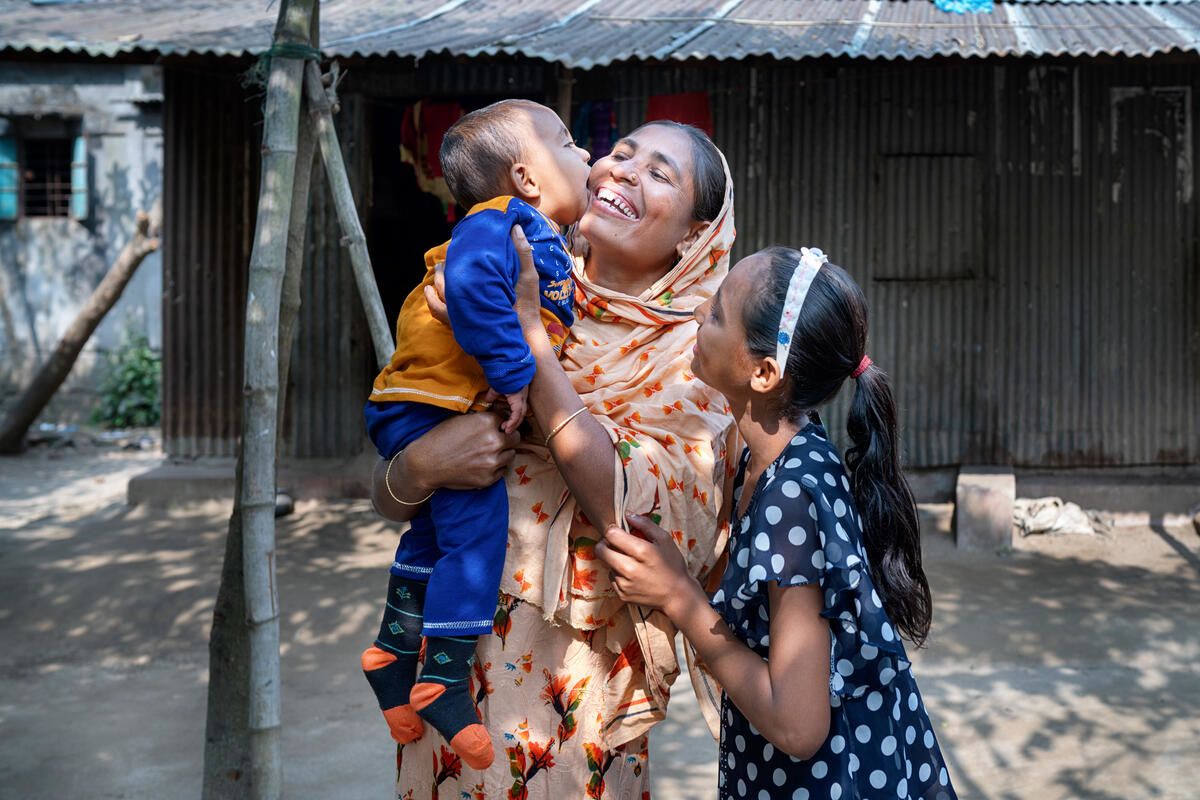
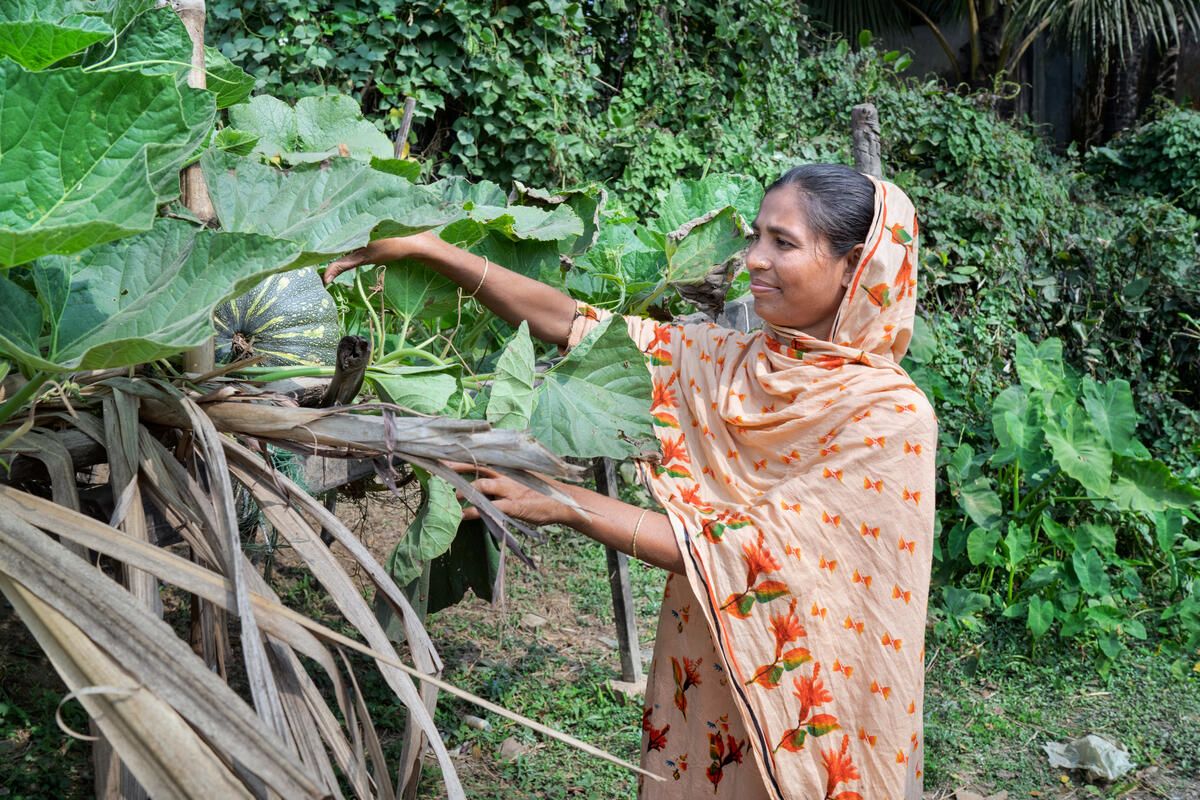
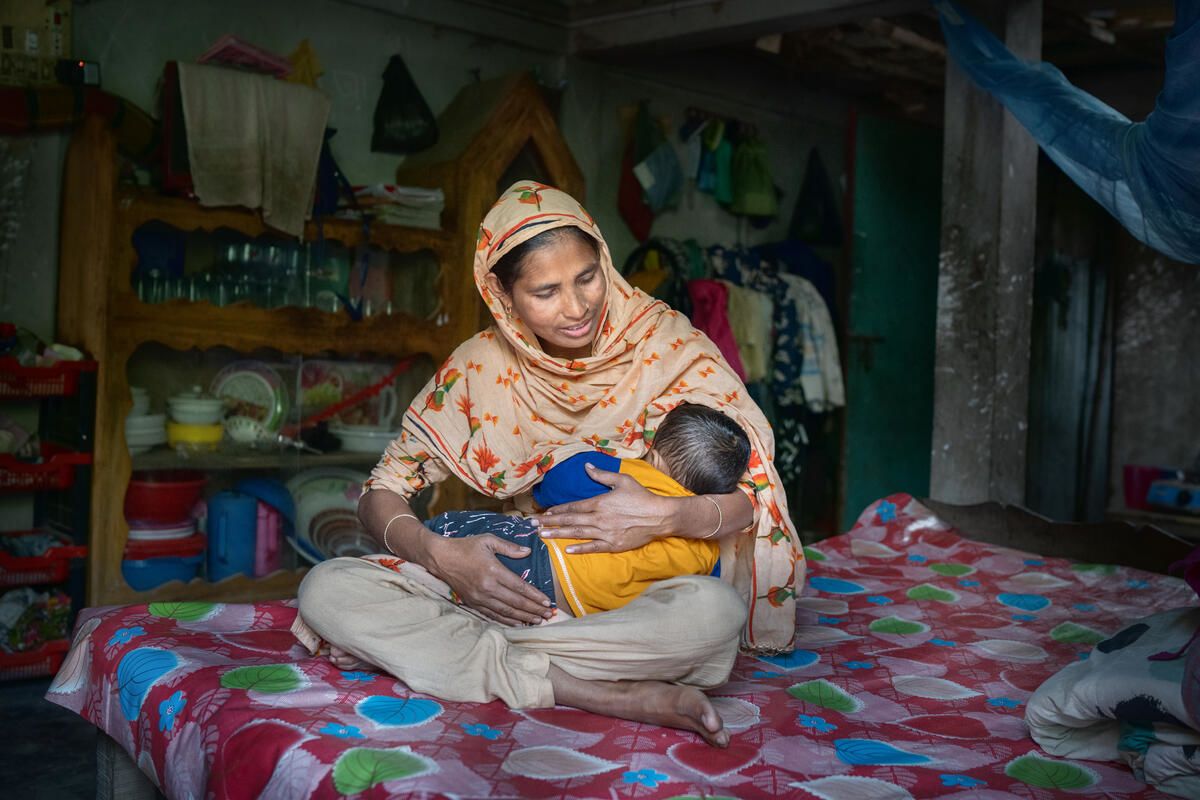
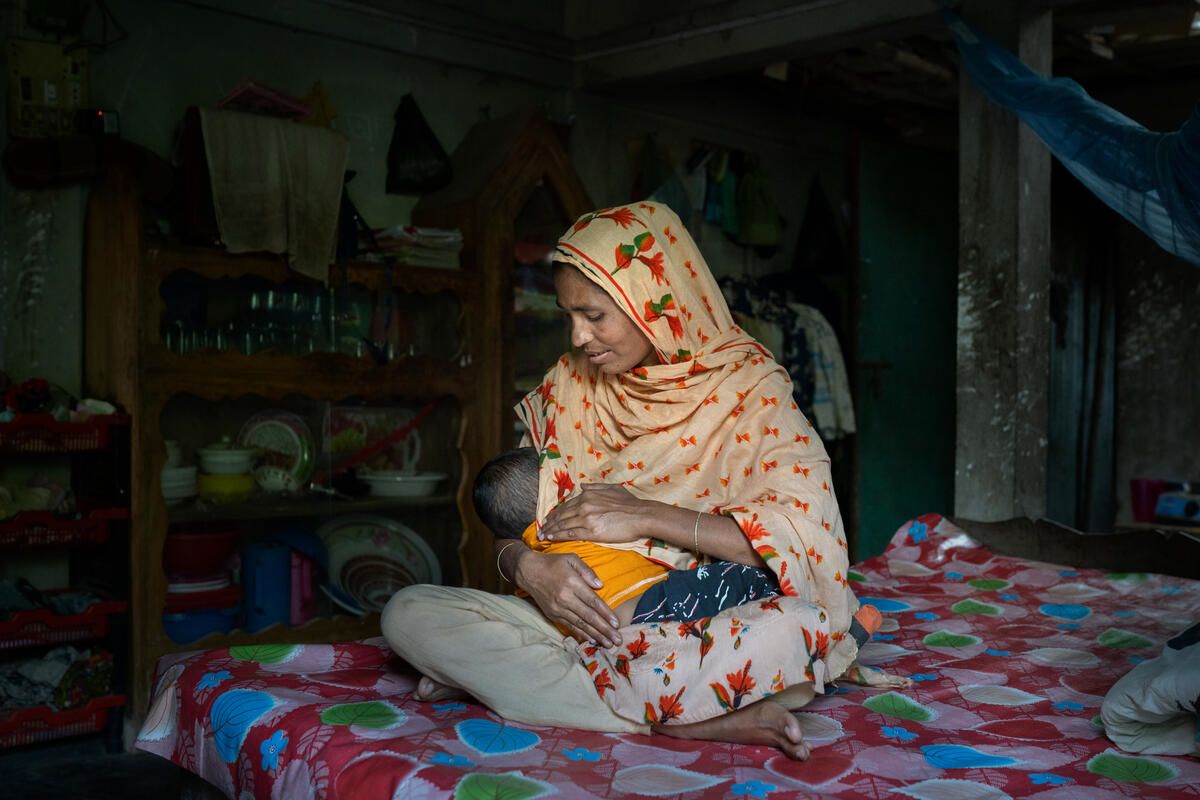
ALMOST 90%
OF WOMEN NOW EXCLUSIVELY BREASTFEED THEIR BABIES BETWEEN 0-6 MONTHS
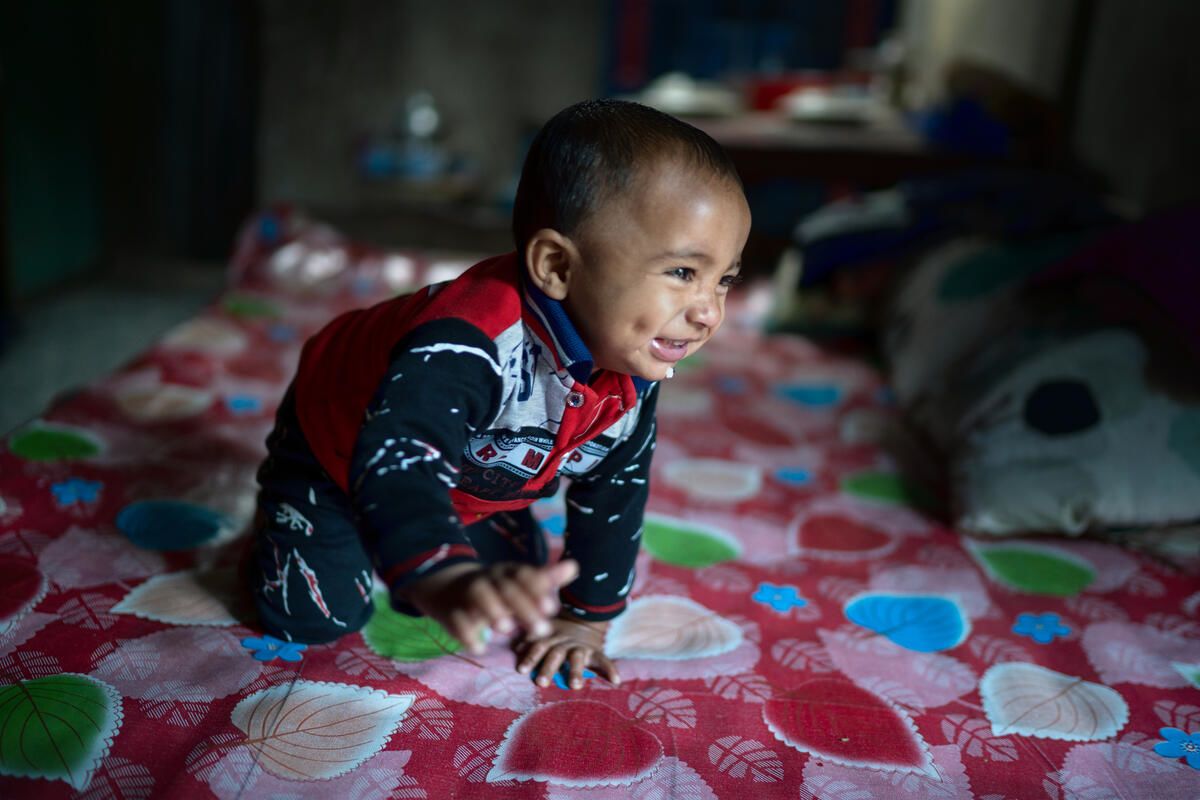
23% MORE
HOUSEHOLDS ARE NOW FOOD SECURE
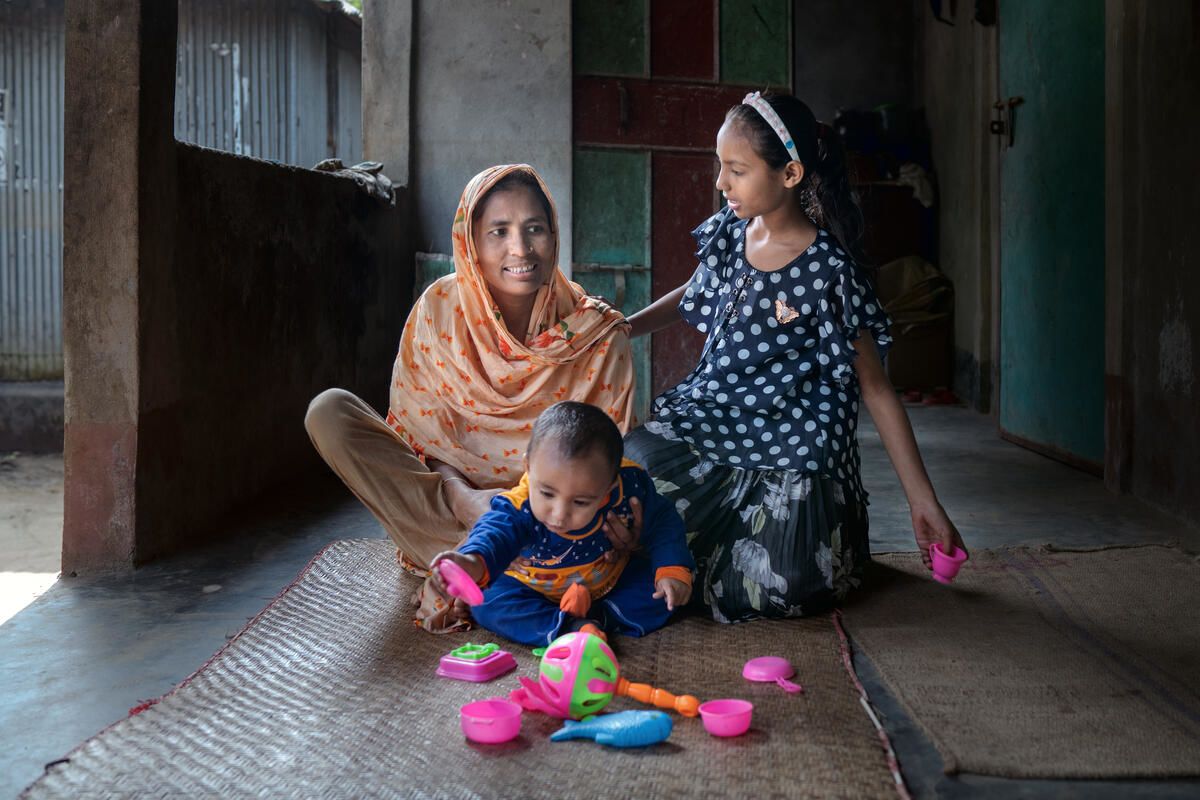
1,869,263
MATERNAL AND CHILD NUTRITION COUNSELLING SESSIONS HAVE TAKEN PLACE
CHAN VANU
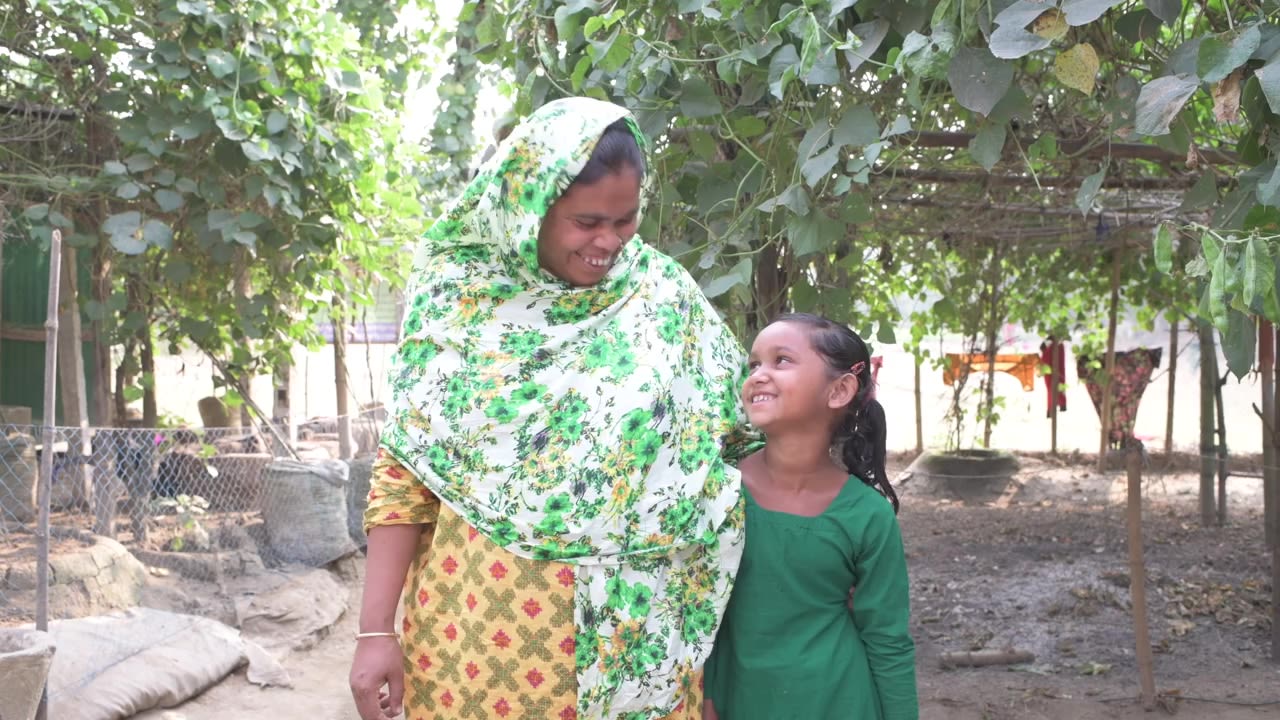
THE COMMUNITY EXPERT
"I help my mother by putting the soil in sacks."
10-year-old Junaed loves to help his mother Chan Vanu water her plants and make vermicompost – a method of using worms to turn garden waste into nutrient-dense compost.
Chan Vanu is a vegetable maestro, and her neighbours often come over to look at her plants and get her advice.
But it wasn’t always this way.
For a long time, Chan Vanu dreamt of growing vegetables, but without the right knowledge and tools, she couldn’t produce much. That changed when she enrolled in the Suchana programme where she learnt different techniques and was given everything she needed to set up her own vegetable garden.
Every seed that I plant, grows more.
Chan Vanu was also given poultry training and has used this knowledge to grow her coop of six chickens to 100 chickens.
On top of this, Chan Vanu was trained to work as a community vaccinator and now works to vaccinate all of the poultry in her community to protect them from diseases.
Thanks to a combination of her hard work and the Suchana training, she’s now able to feed her family nutritious meals and sell surplus vegetables and eggs to pay for her children’s school fees.
"I feel very happy. I like this work very much. My sons and daughters are also happy," she says.
In 2022, severe floods washed through Chan Vanu's home, and the family were forced to find shelter nearby.
This wiped out the family’s savings but thankfully Chan Vanu was able to sell seeds she was given by Suchana and continue her poultry vaccinator work. She also got to work planting more vegetables, and using tower and sack gardens to protect them from future floods.
All the things in our house and our crops were all destroyed. But the things we learned were not destroyed.
With a steady income and the skills to keep her family fed, healthy and safe, Chan Vanu has one wish for the future.
"I am doing [Suchana’s work] and I don't want to give it up," she tells us.
"I want to see my family happy."
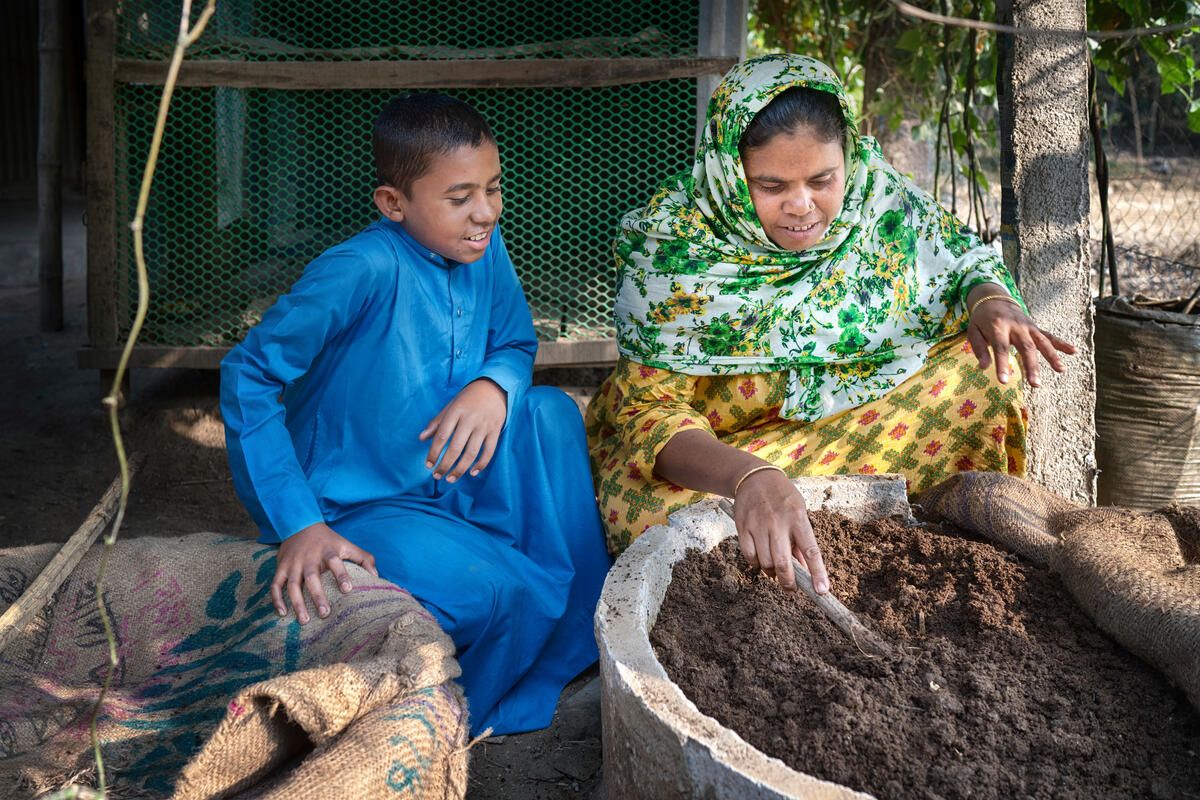
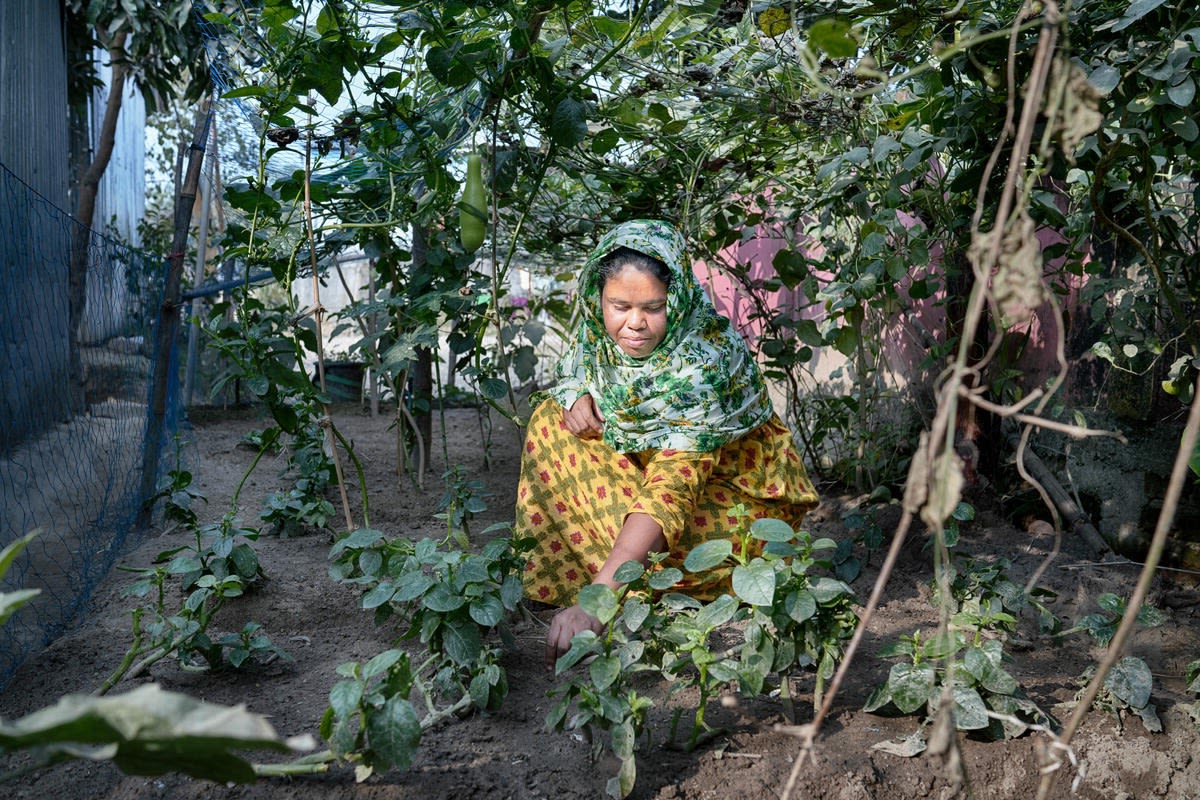
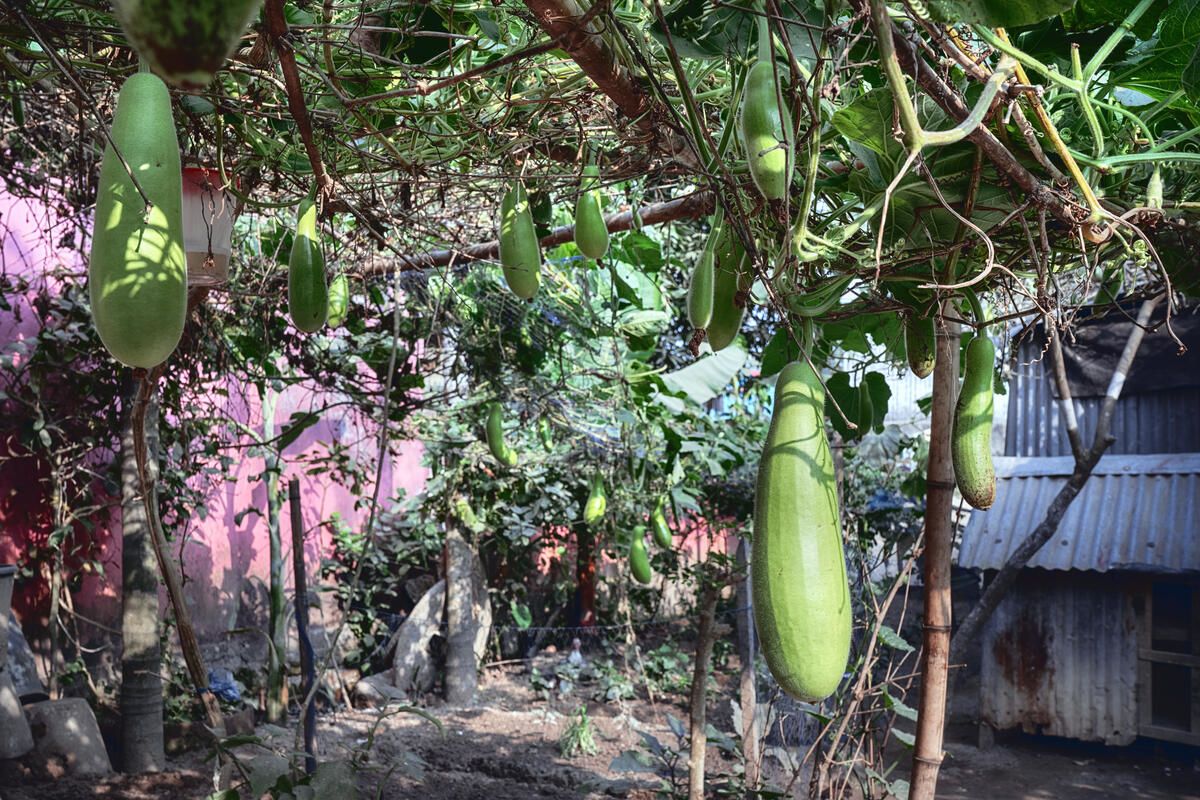
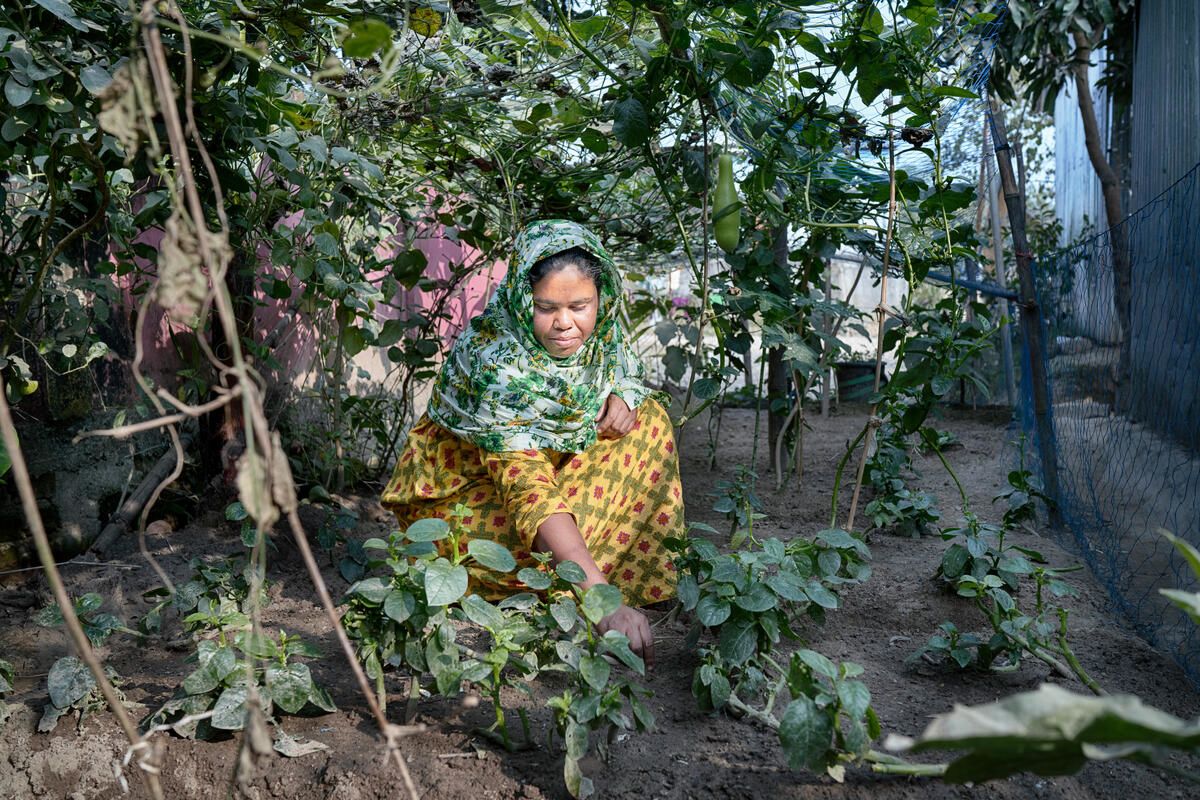
70%
OF HOUSEHOLDS THAT RECEIVED INCOME GENERATING SUPPORT ARE STILL MAKING A PROFIT
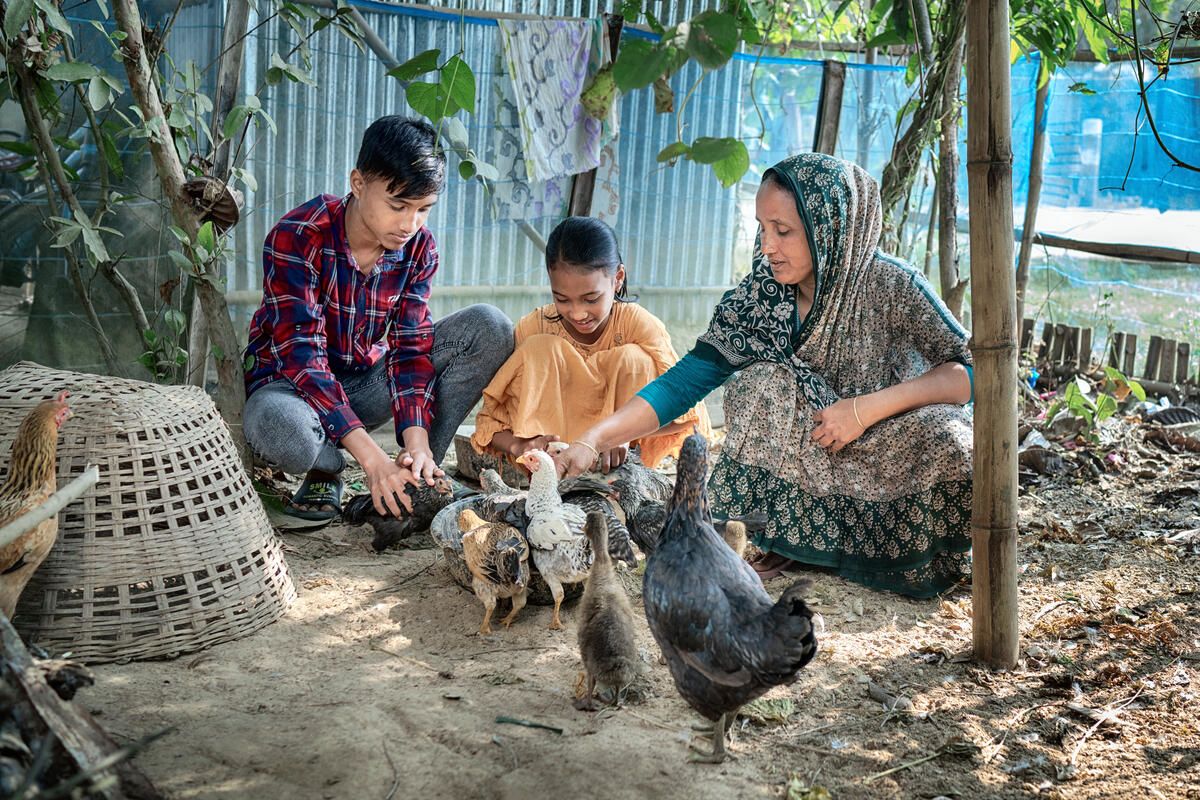
113,886
HOUSEHOLDS NOW REAR POULTRY AT HOME WITH IMPROVED TECHNIQUES
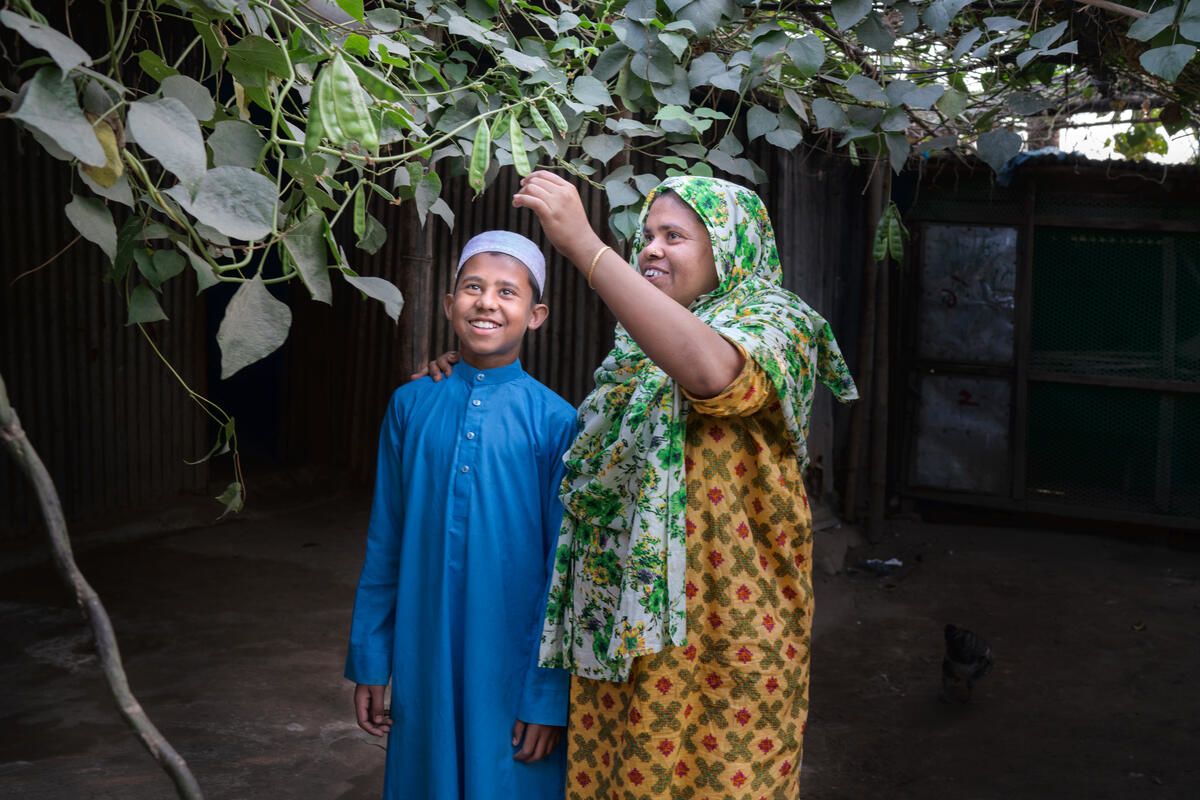
1,192
WOMEN ARE NOW COMMUNITY LIVESTOCK VACCINATORS
JAFRIN BEGUM
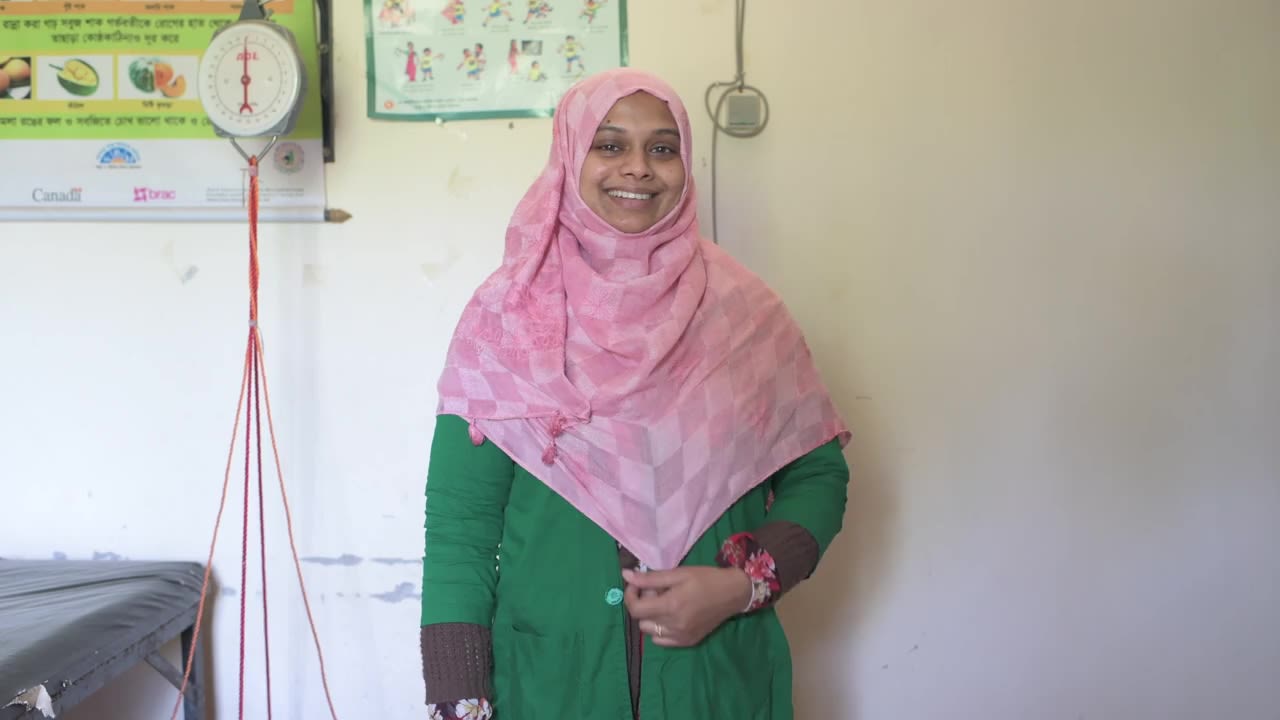
THE HEALTHCARE WORKER
The healthcare workers who serve their communities in Bangladesh are true super heroes. We worked with incredible healthcare providers to amplify our message, including Jafrin Begum, who works in a Community Clinic in Sylhet.
She's wanted to help people since she was a teenager, inspired by the health assistant who vaccinated her against illnesses. The health assistant encouraged Jafrin Begum to build her career in the service giving sector. She's never looked back since.
Jafrin Begum lists all of the essential services she's providing to the community, working closely with the Suchana programme: "Adolescent health, pregnancy services, baby nutrition. And we also sit together and counsel [mothers]. We call it The Mothers' Rally."
Jafrin Begum has also noticed an increase in women from lower-income households coming to receive services and treatment. This is thanks to the Suchana Community Mobilisers who have worked together with the clinic to encourage women and adolescent girls to access healthcare.
"I found that from one area, people used to come to the clinic less but they have come more now. As they were members of Suchana and advice was given."
They came even though they lived far away.
Jafrin Begum is happy to witness her patients' health improving after being enrolled on the Suchana programme.
Suchana has coordinated with community clinics to provide antenatal and prenatal check-ups. But because of how difficult it is to get to the clinic from rural areas, too many women have been reluctant to access the care they need.
That's where Suchana community mobilisers have stepped in to encourage mothers to go and access the services. And when their babies are born, we also screen them for moderate and severe acute malnutrition, so they can be referred to get treatment.
During the devastating floods in 2022, lots of staff even went door to door by boat to ensure that pregnant women and new mothers could still get the care they needed.
For Jafrin Begum, there's one story in particular that stands out. One of the mothers she treats has four children. The first was born before the clinic was established but Jafrin was able to guide her through her next pregnancies - and even delivered the fourth baby herself!
"[The families] get some support from Suchana which they didn't get before.
The changes are noticeable. Their food standards have improved.
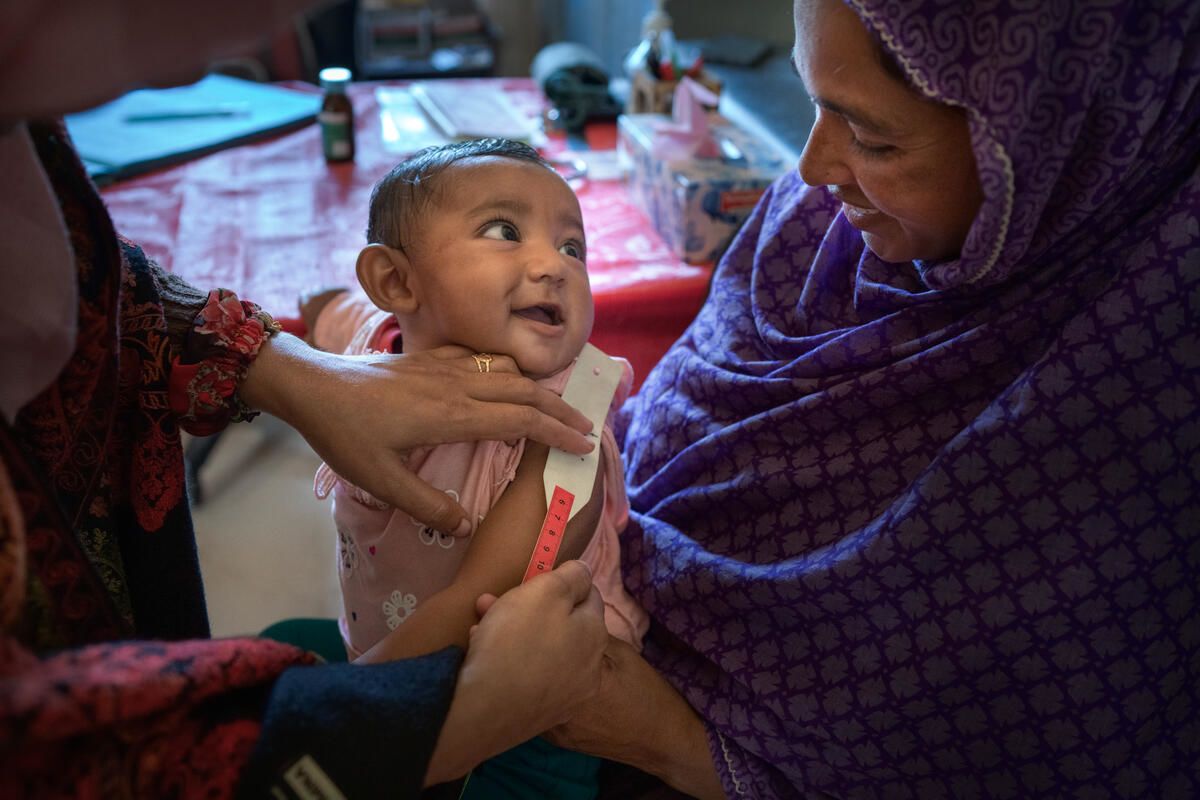
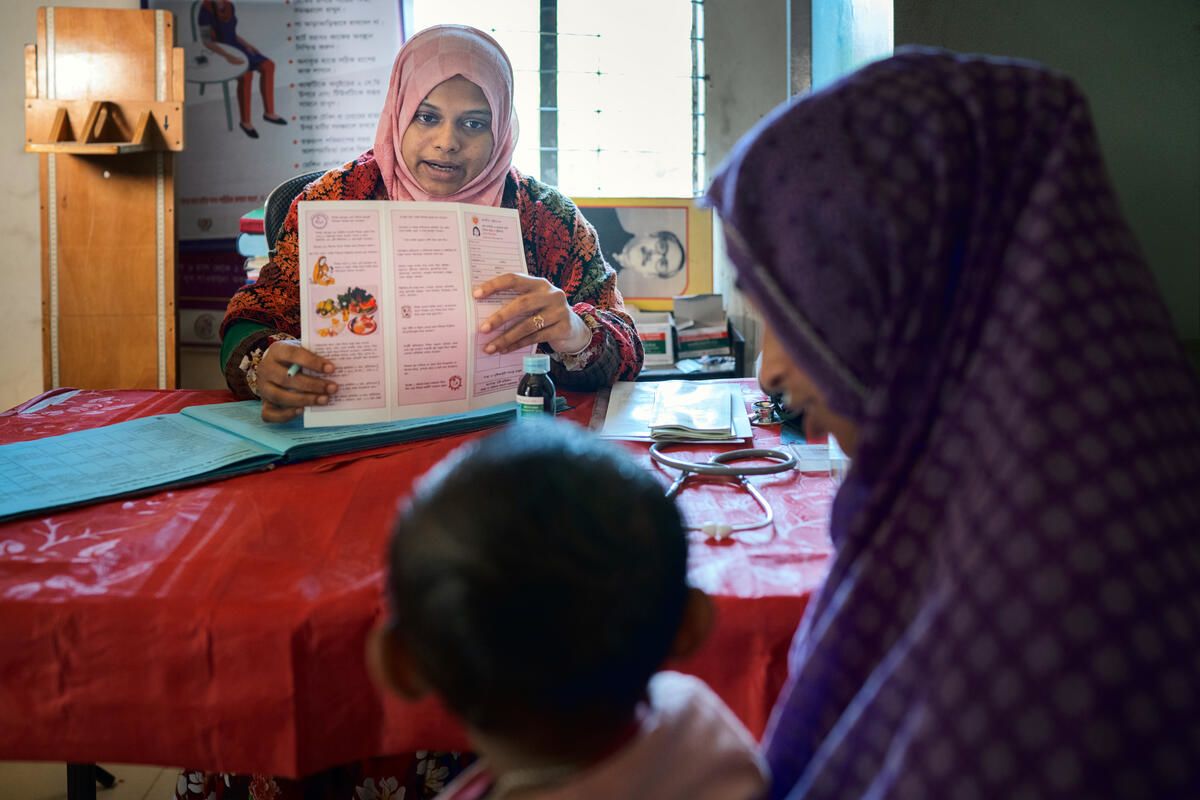
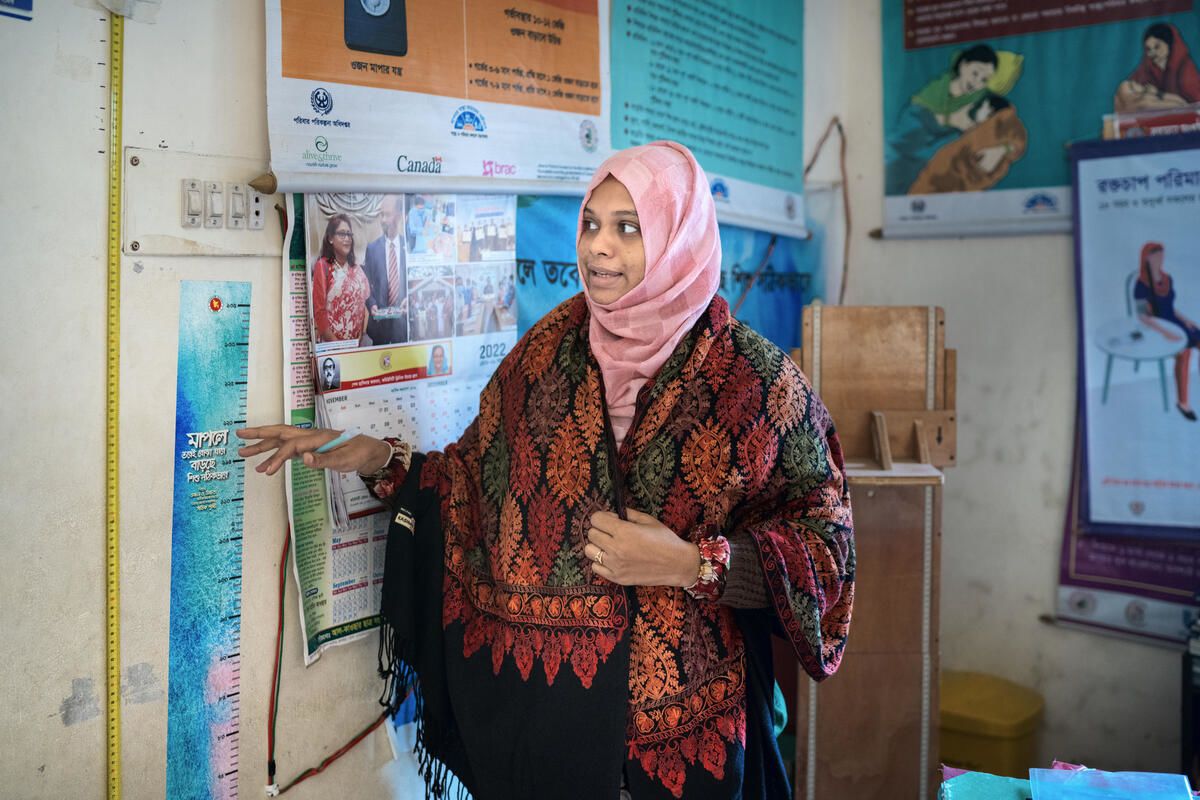
10% MORE
WOMEN HAVE NOW RECEIVED POSTNATAL CARE
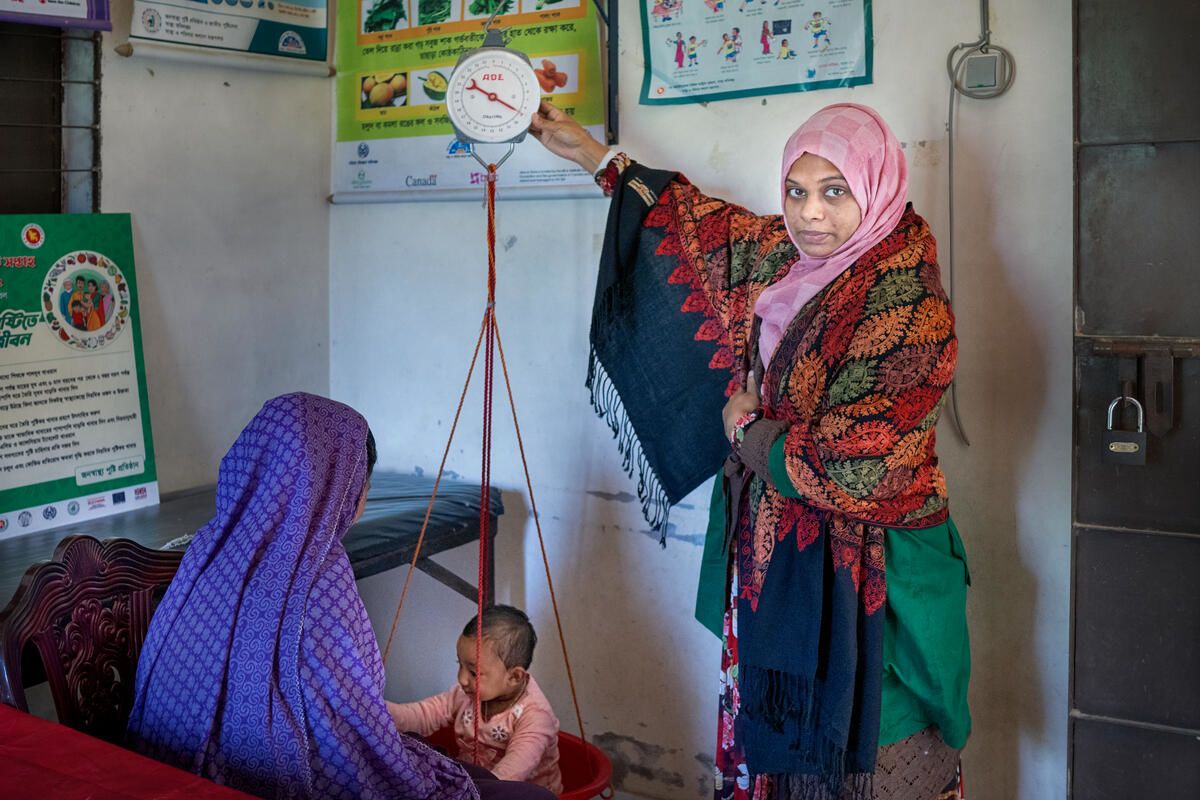
44% MORE
CAREGIVERS HAVE NOW IMPROVED HANDWASHING PRACTICES
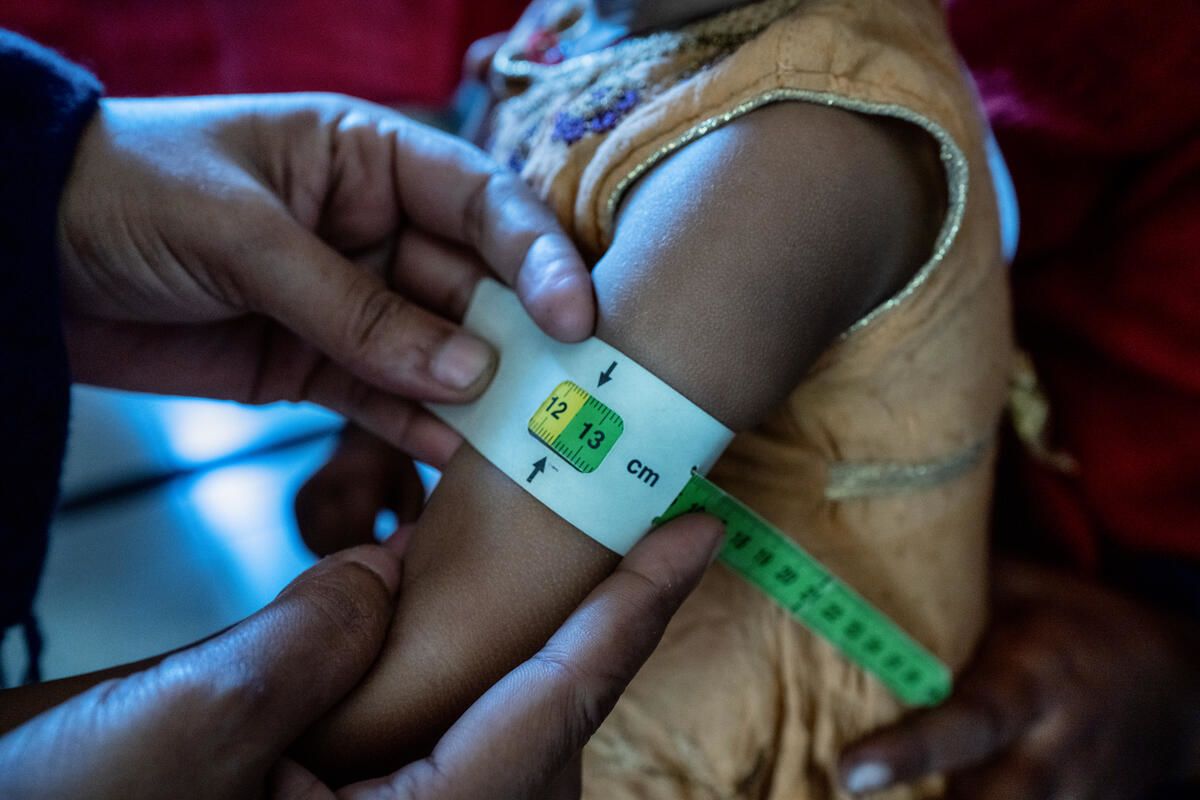
A 30% DROP
IN CHILDHOOD STUNTING HAS BEEN RECORDED IN THE SUCHANA SAMPLE
Discover more of the small simple innovations that are helping to give children the best possible start in life...
NUTRITION PLATES
Parents can use these plates as a guide to ensure that they're feeding their children the right quantities and mix of food groups in every meal.
They're also useful for expectant or breastfeeding mothers, who can use the plates to make sure they're eating a balanced diet with all the nutrients they need from conception up until their babies are six months old.
NUTRITIOUS SEEDS
Women across the community are using and selling these climate-resistant seeds that make it possible for women to harvest vegetables before the monsoon hits or the flood washes everything away.
There are special Suchana messages on the front of the seed packets which indicate all of the different vitamins and nutrients that can be found in in each vegetable. This help mothers to choose a healthy mix of vegetables to grow at home and feed their children.
BREASTFEEDING CORNERS
The Suchana project has set up safe and discrete breastfeeding corners in health centres across the district, to encourage mothers to breastfeed their babies for as long as possible.
The six year Suchana programme will have a lasting impact. These women, and many many more, are changing the course of their families' futures for generations to come. Through working in partnership, the Government is sharing the learnings from the model farms and other innovations of Suchana. And Save the Children has already expanded the programme in another district to support more children to realise their full potential.
Find out more about Save the Children's work with communities affected by climate change across the world.
